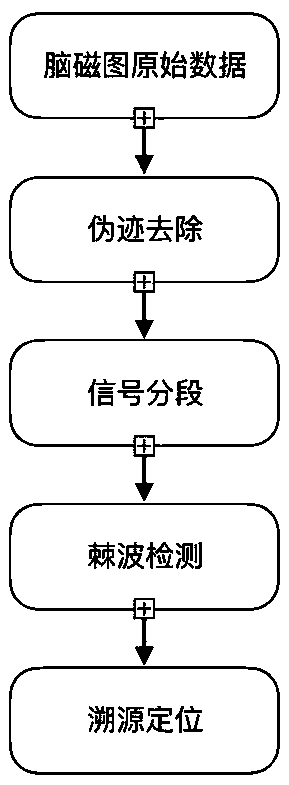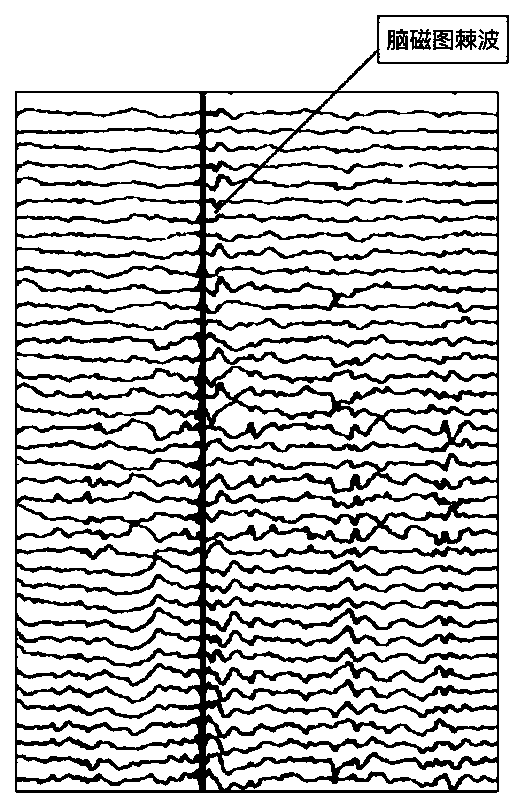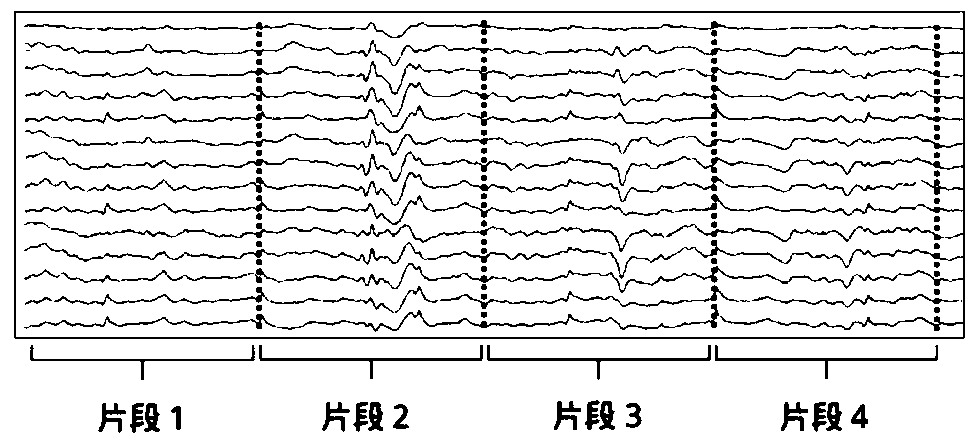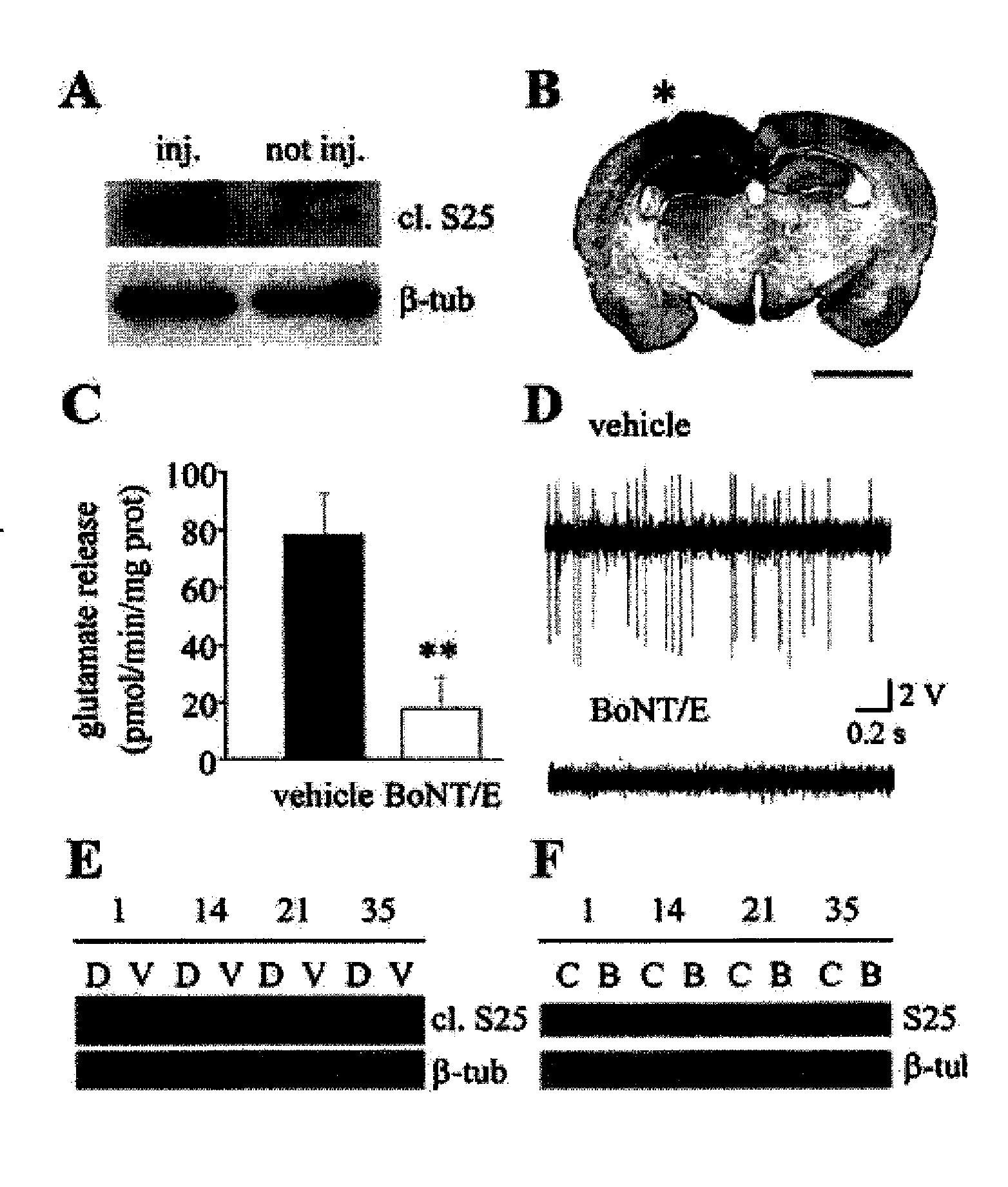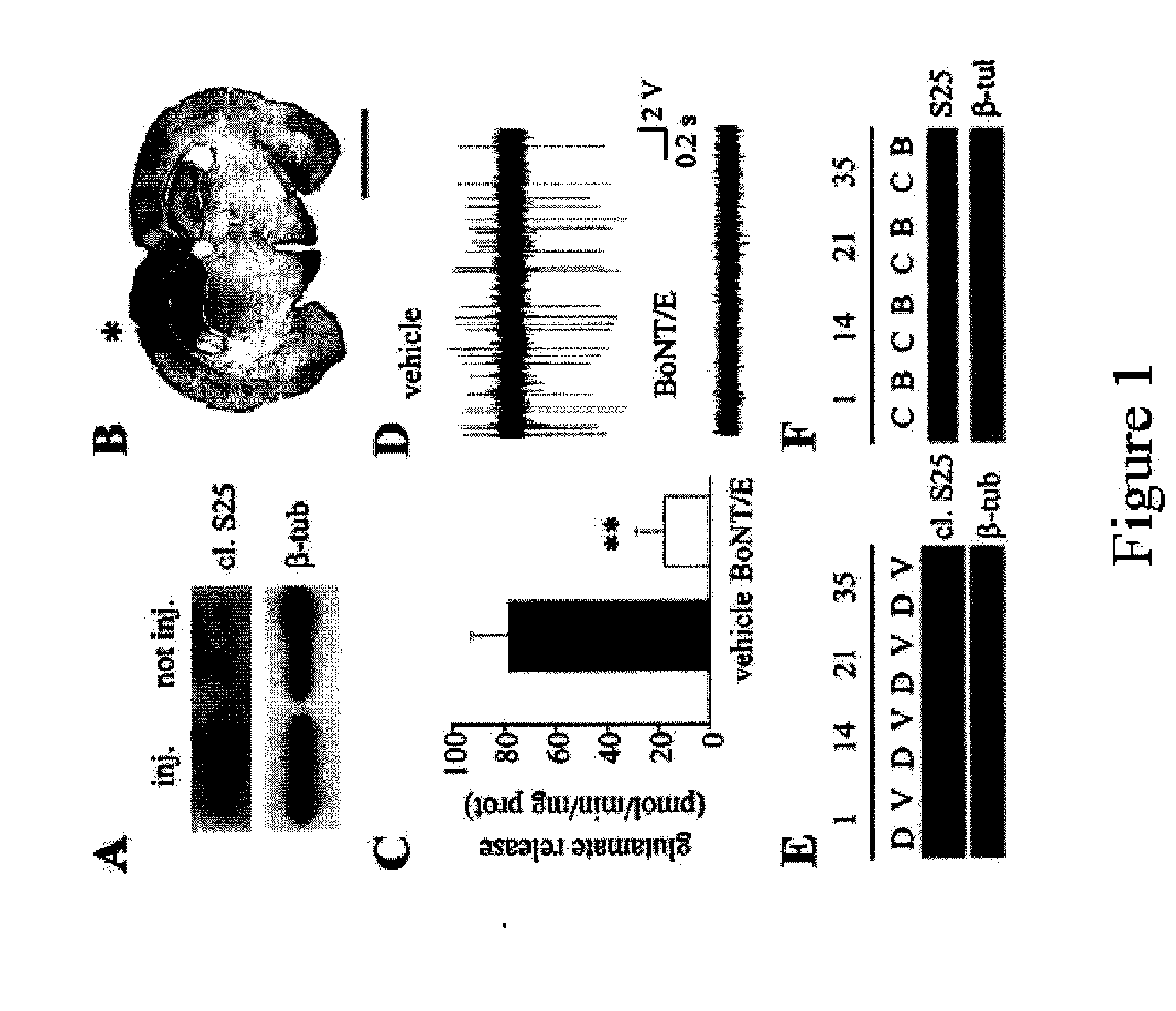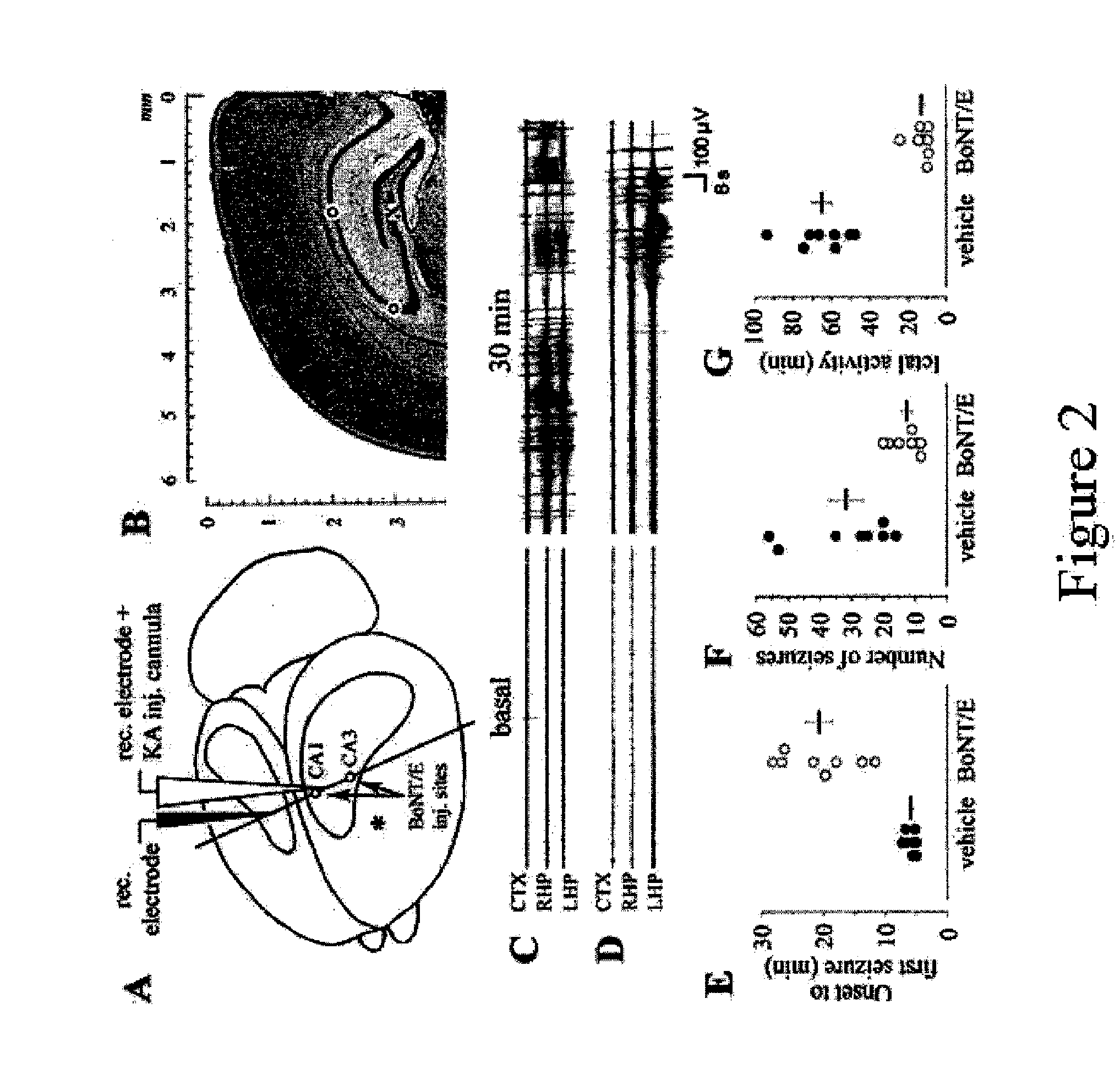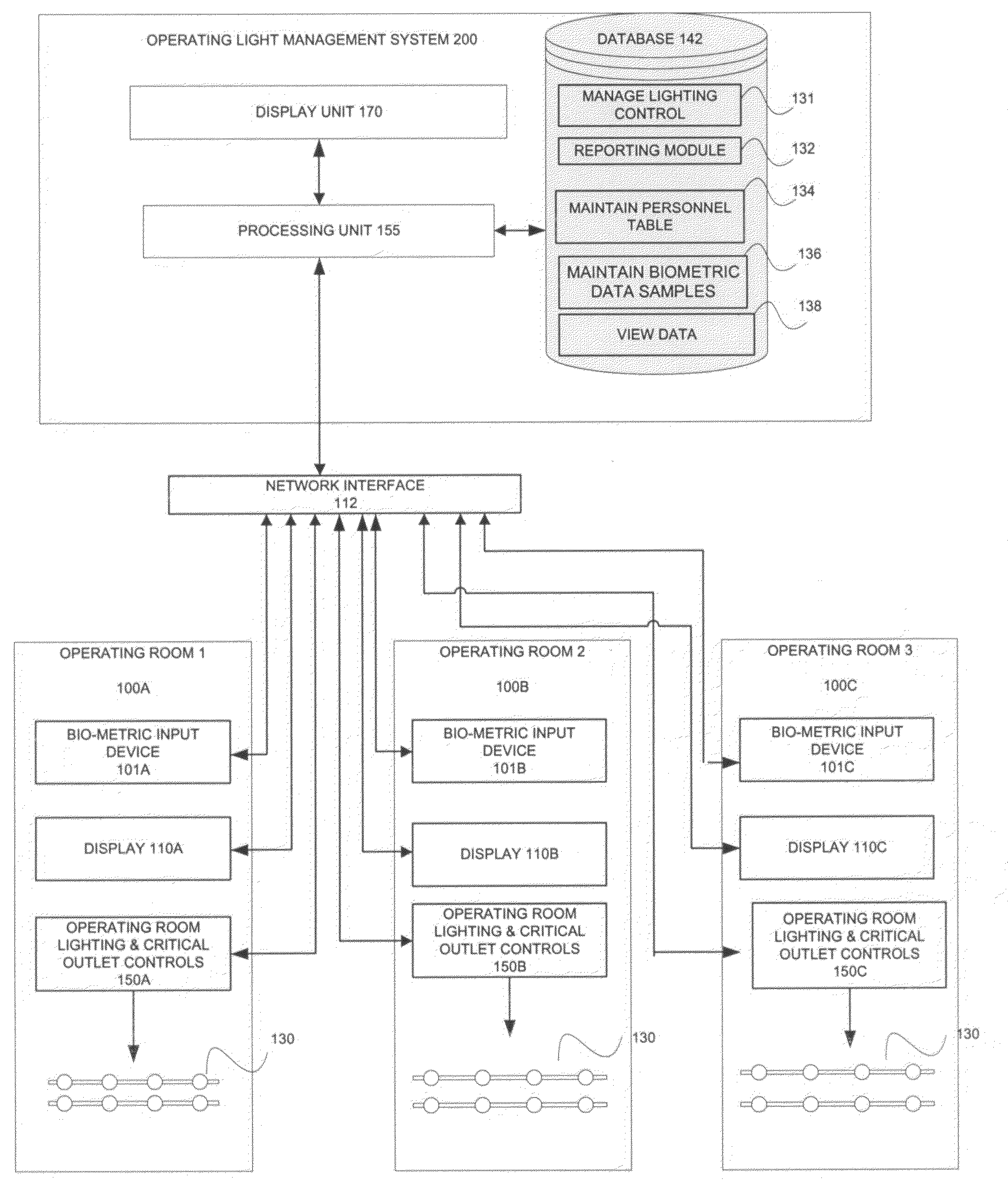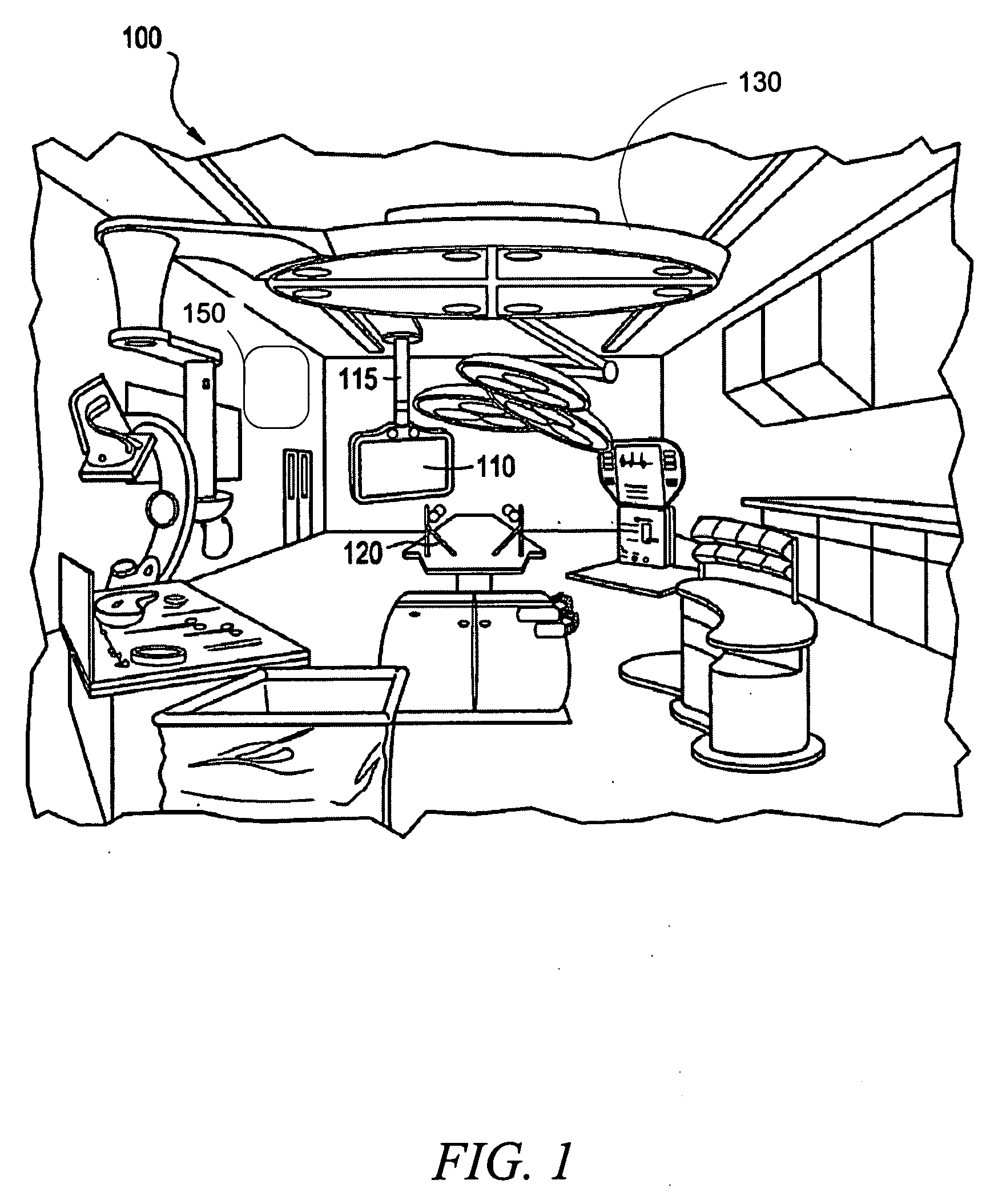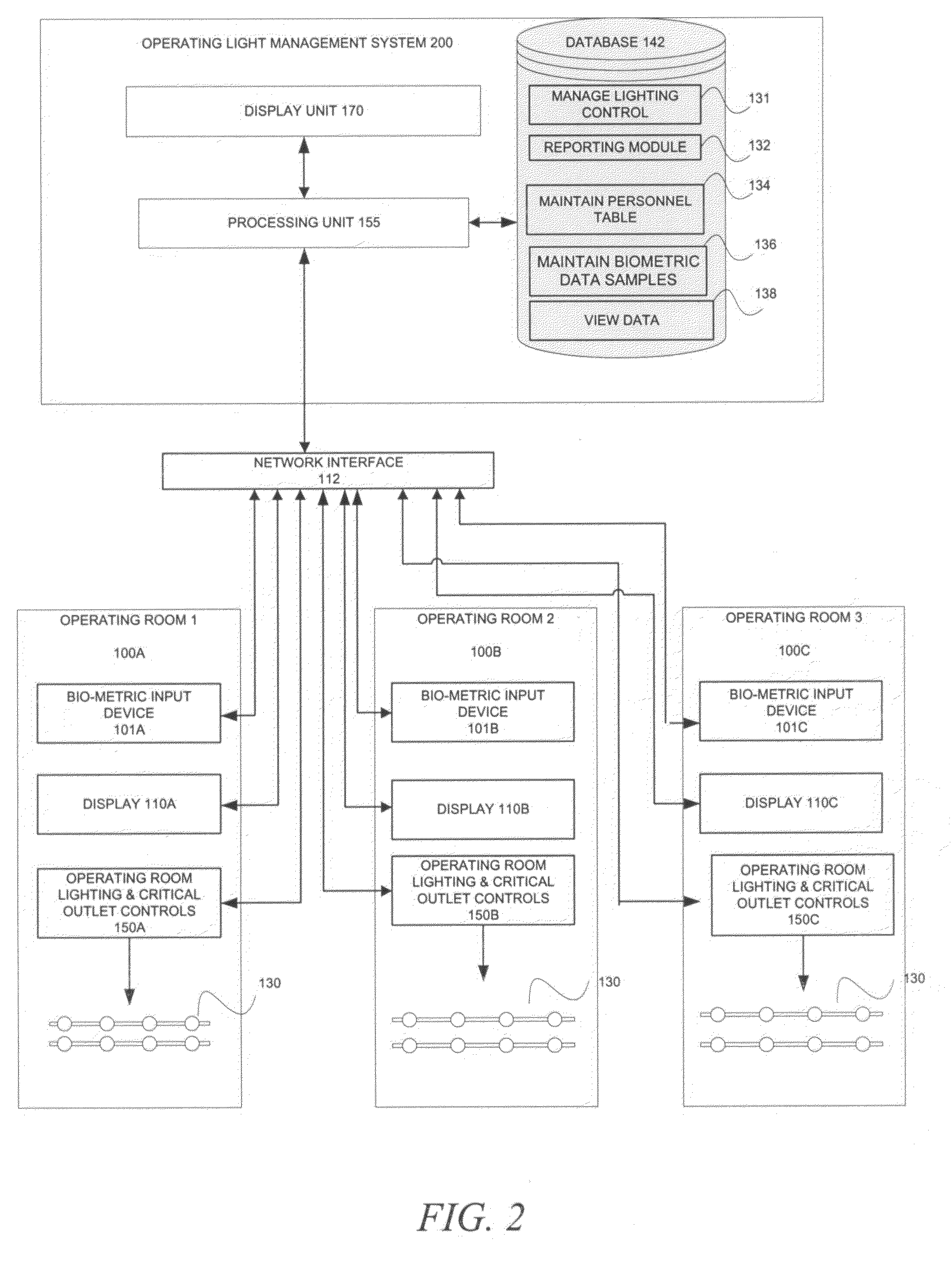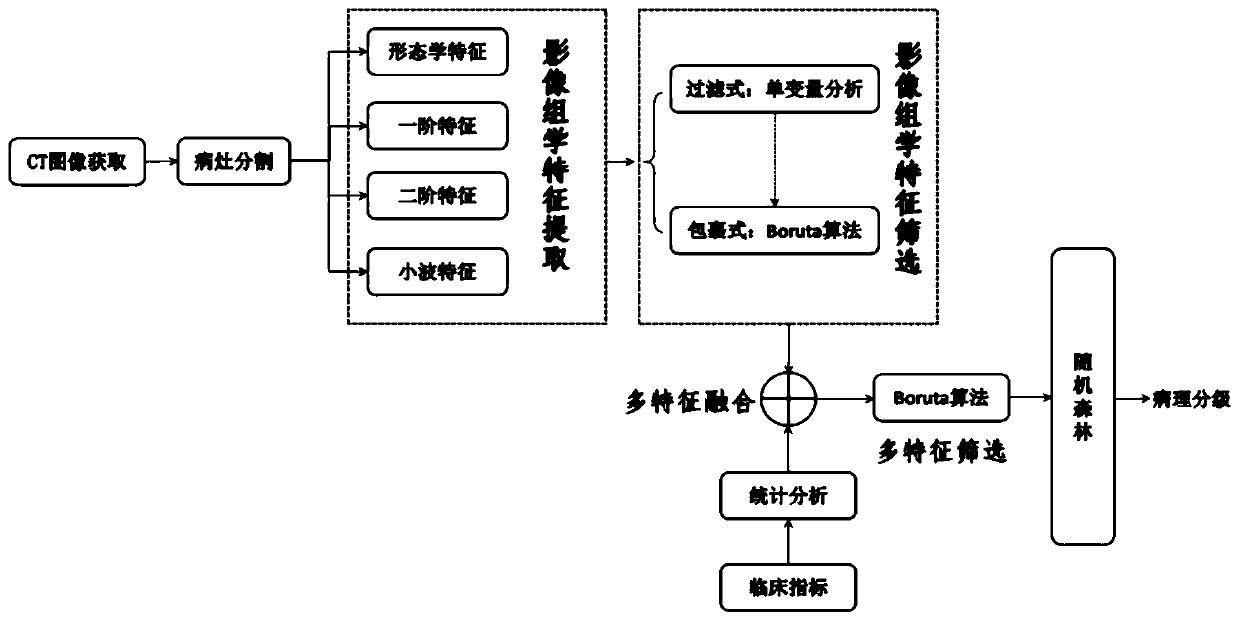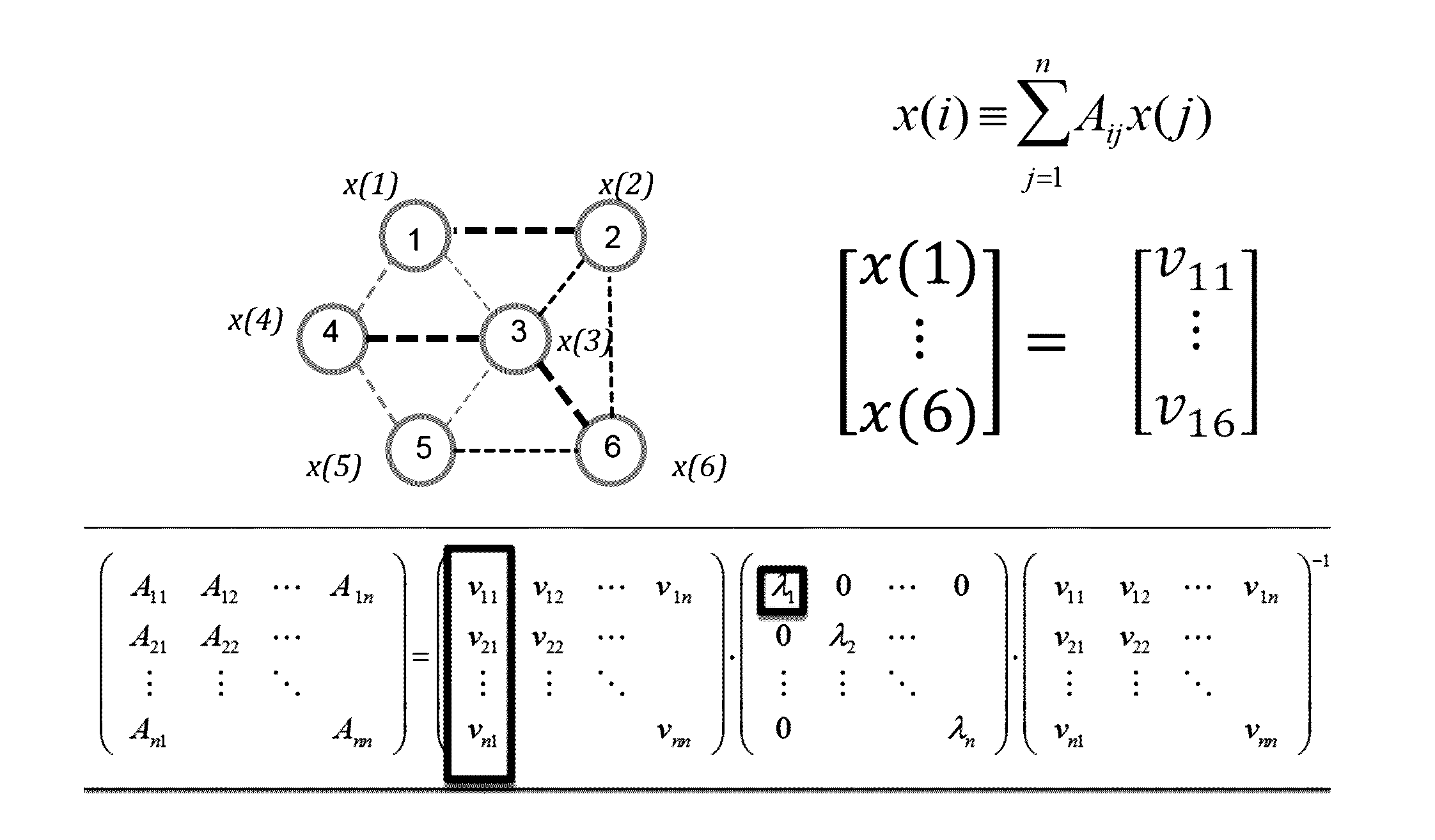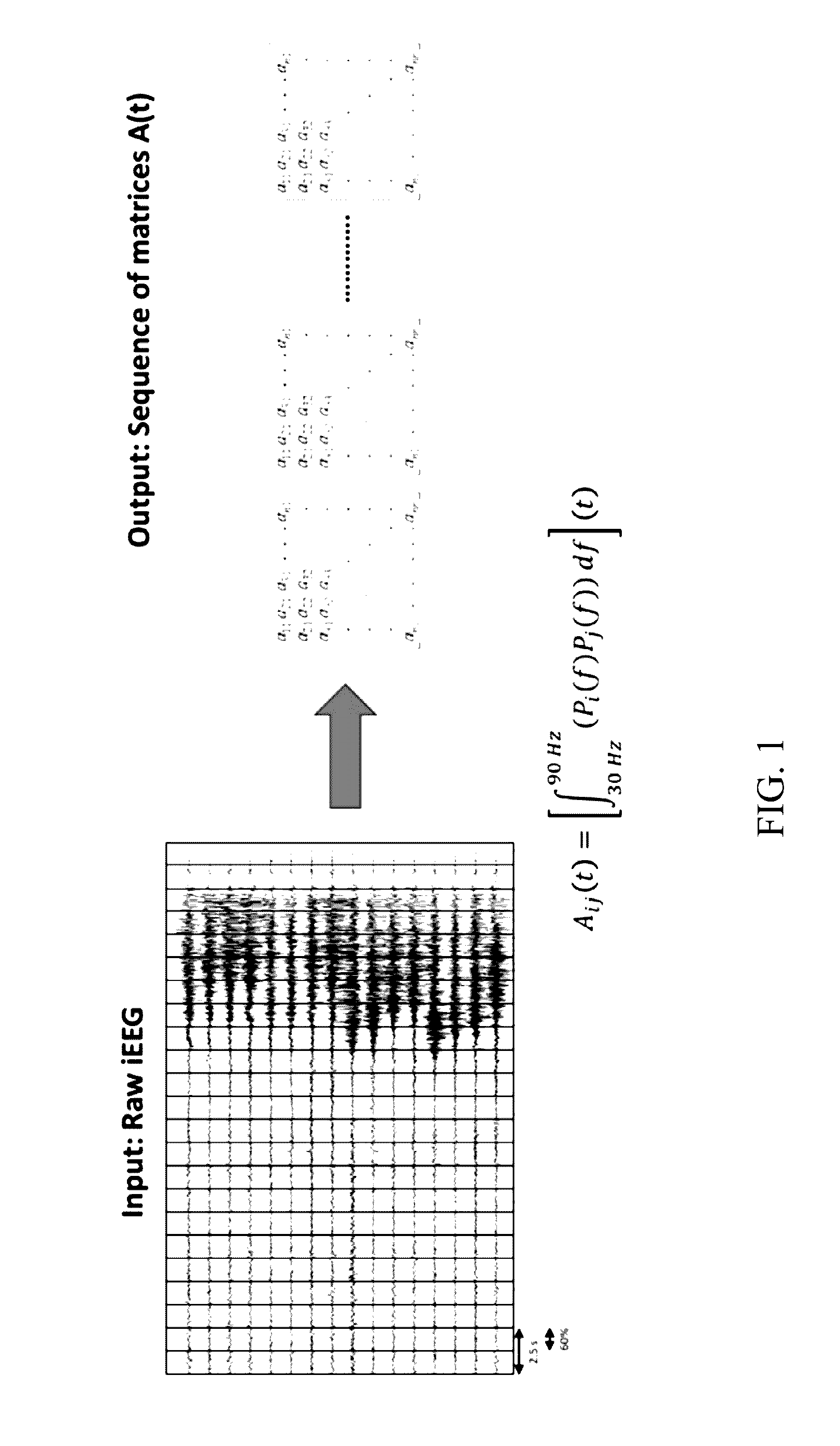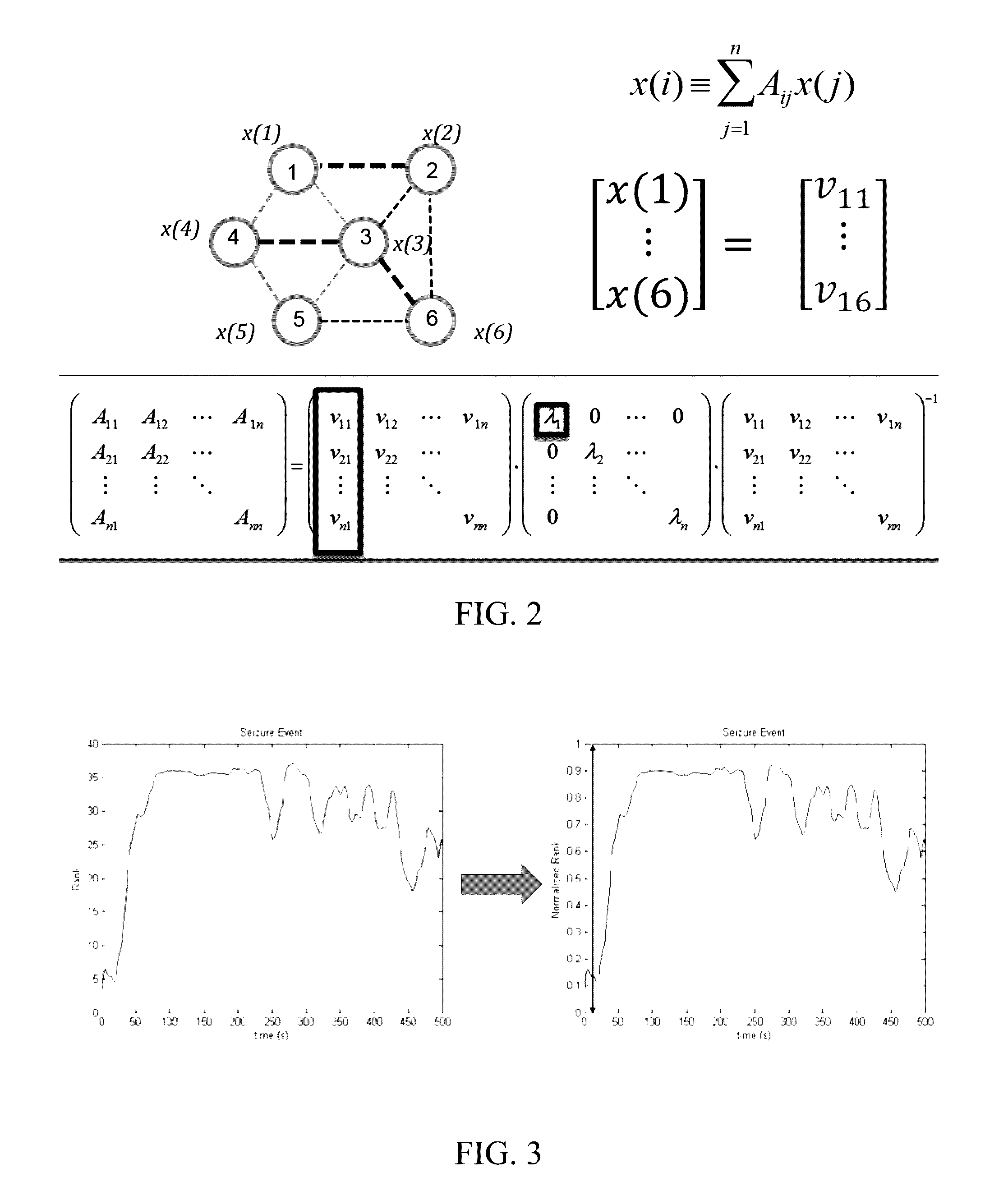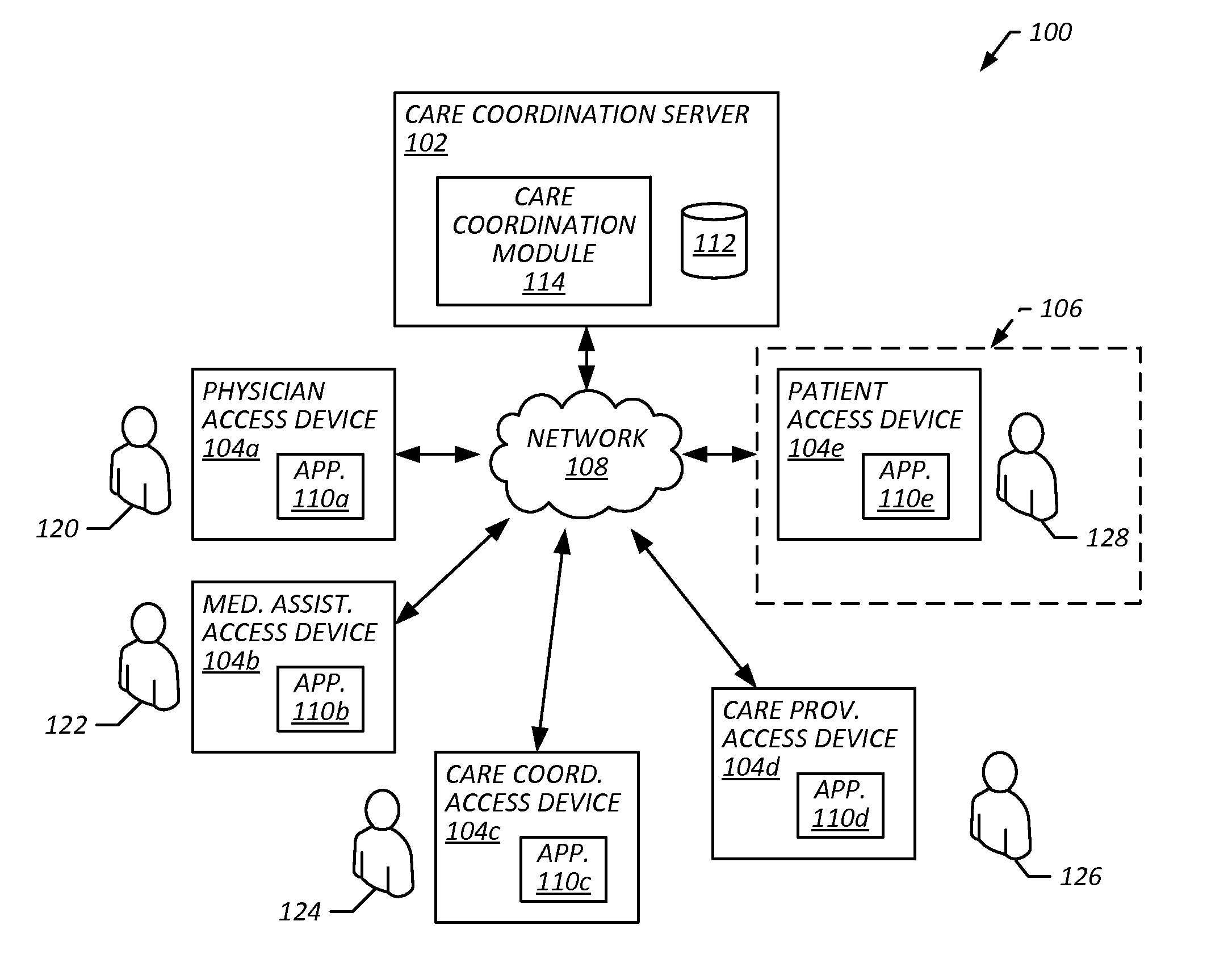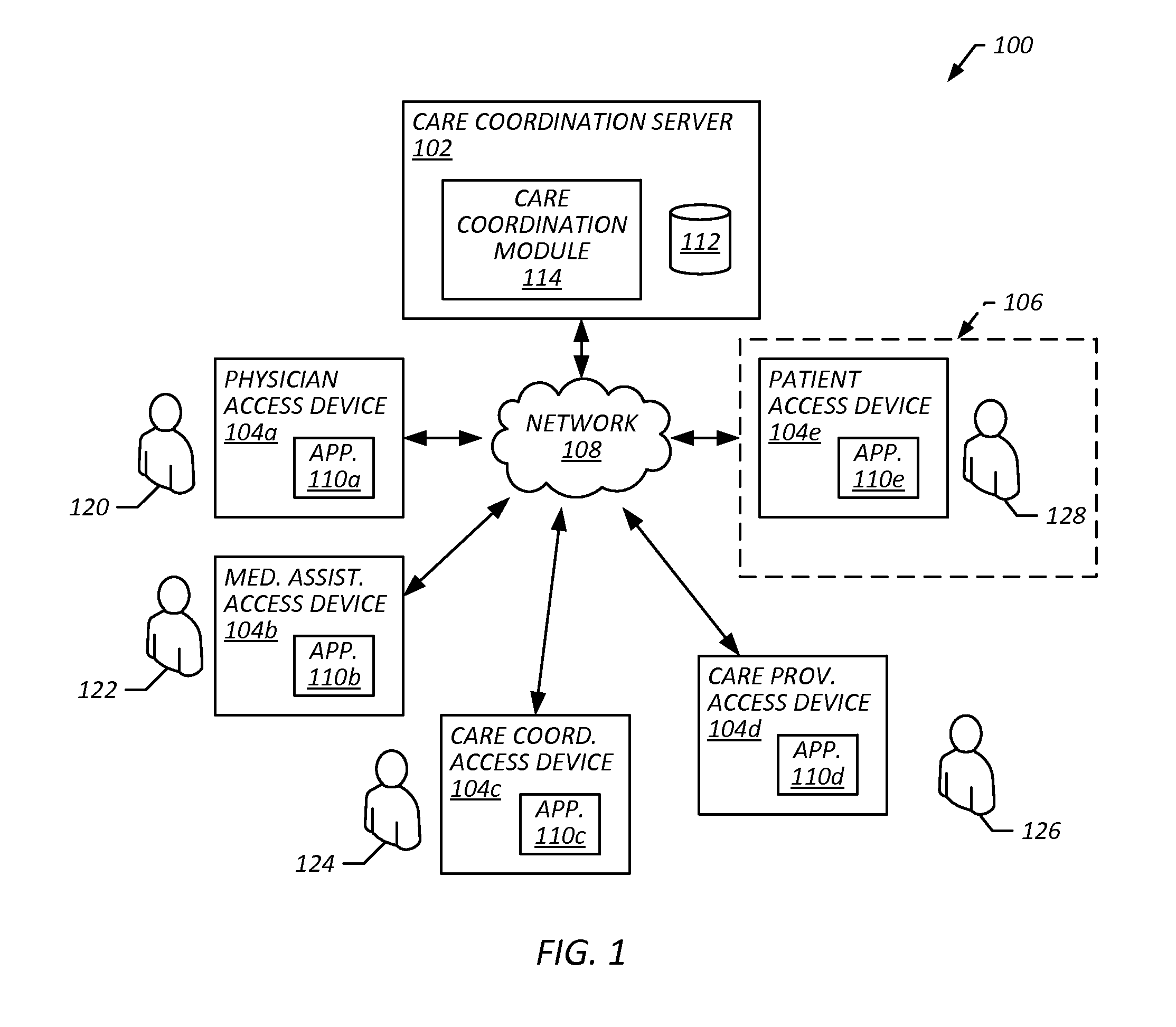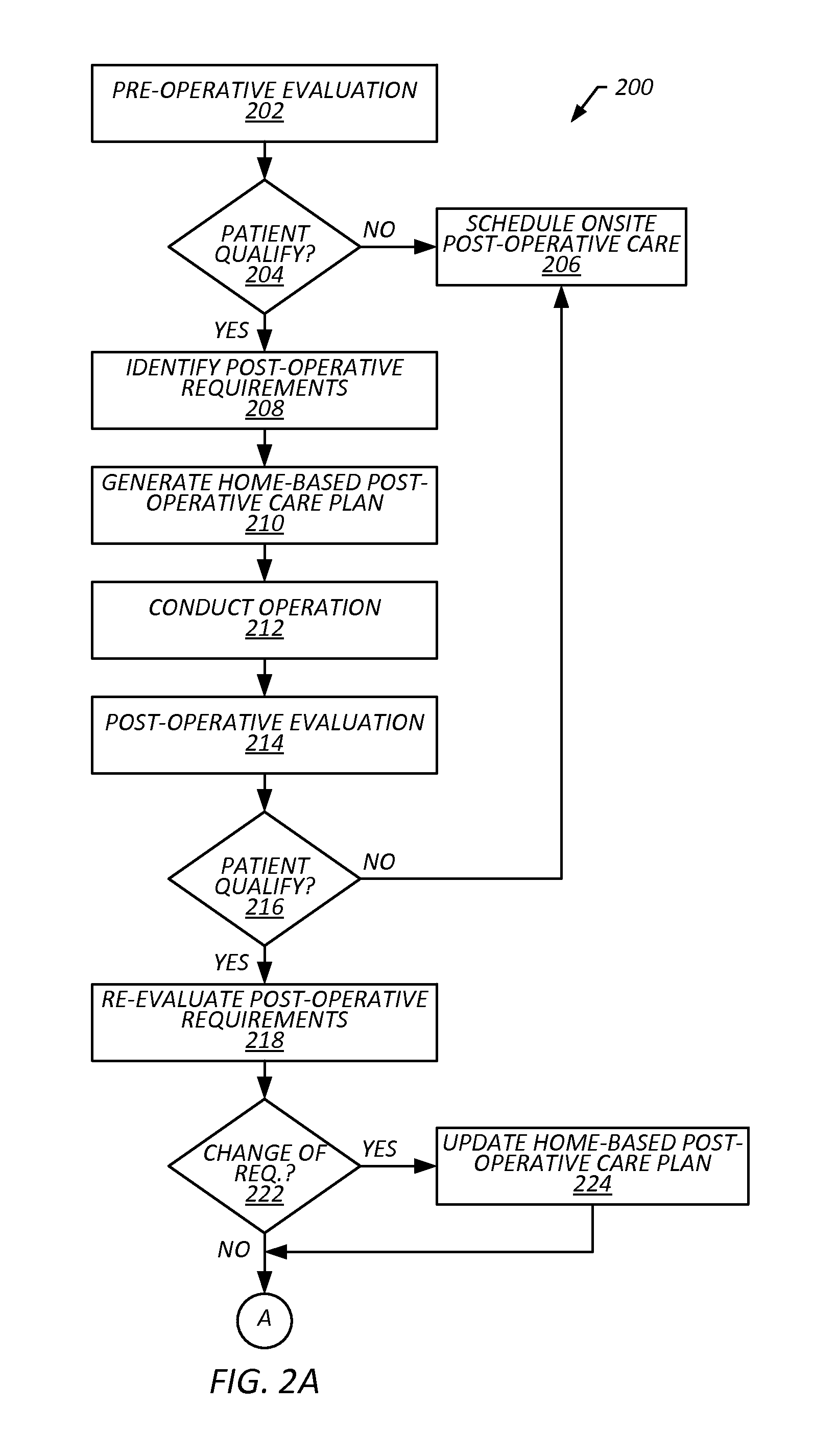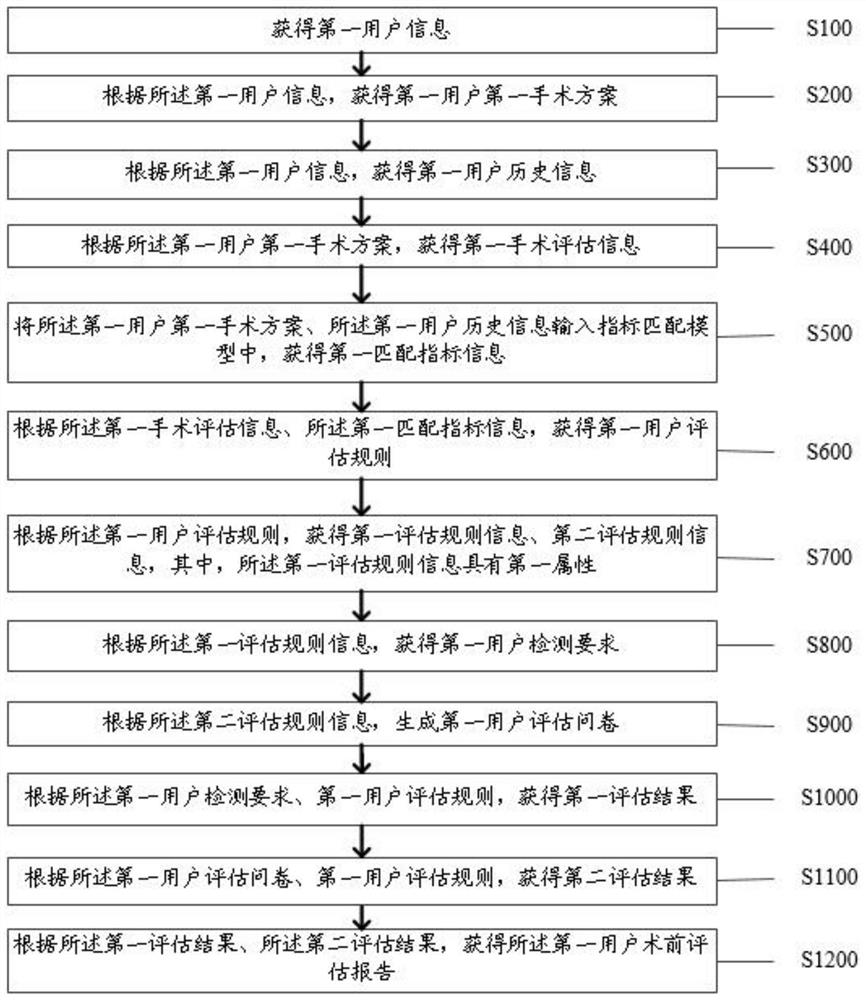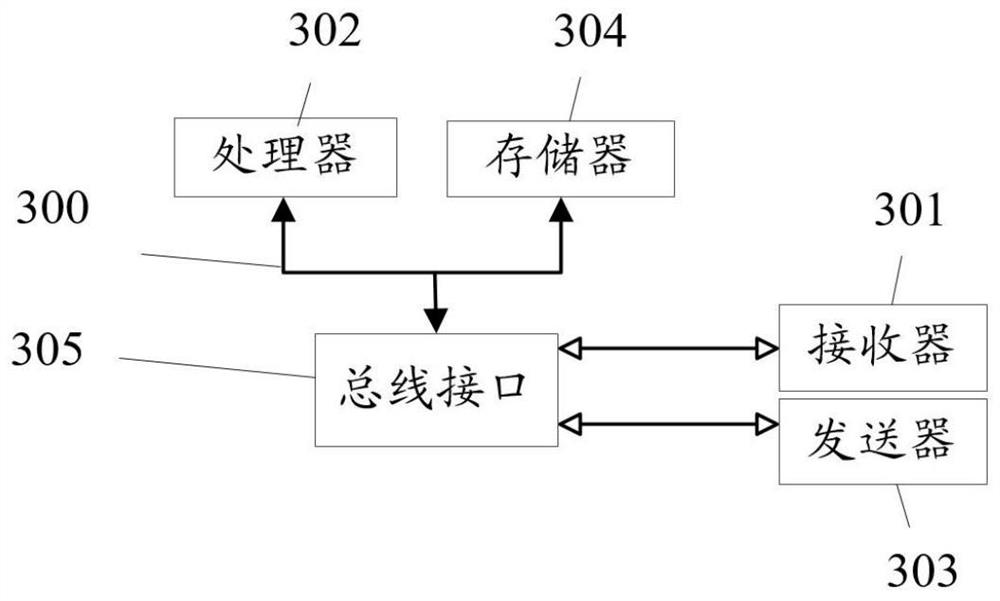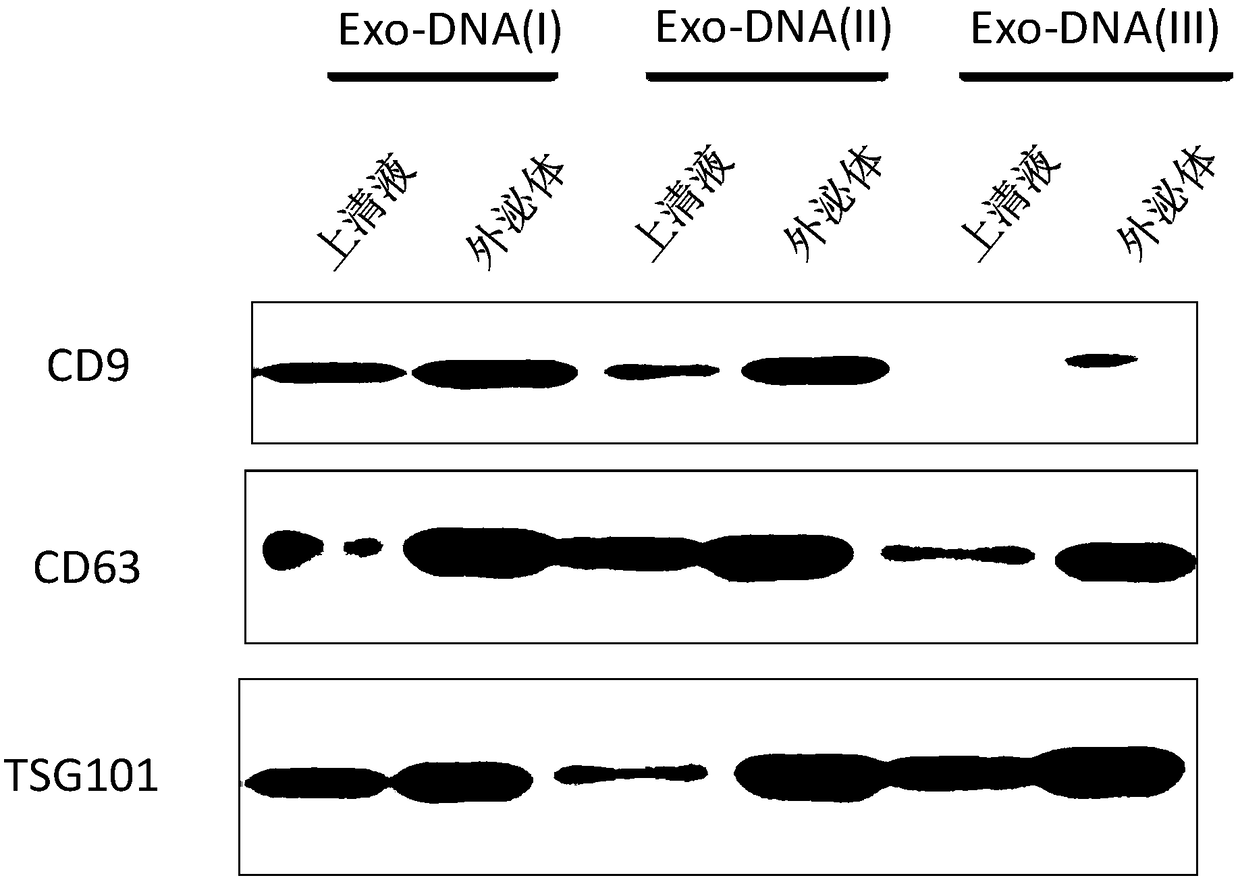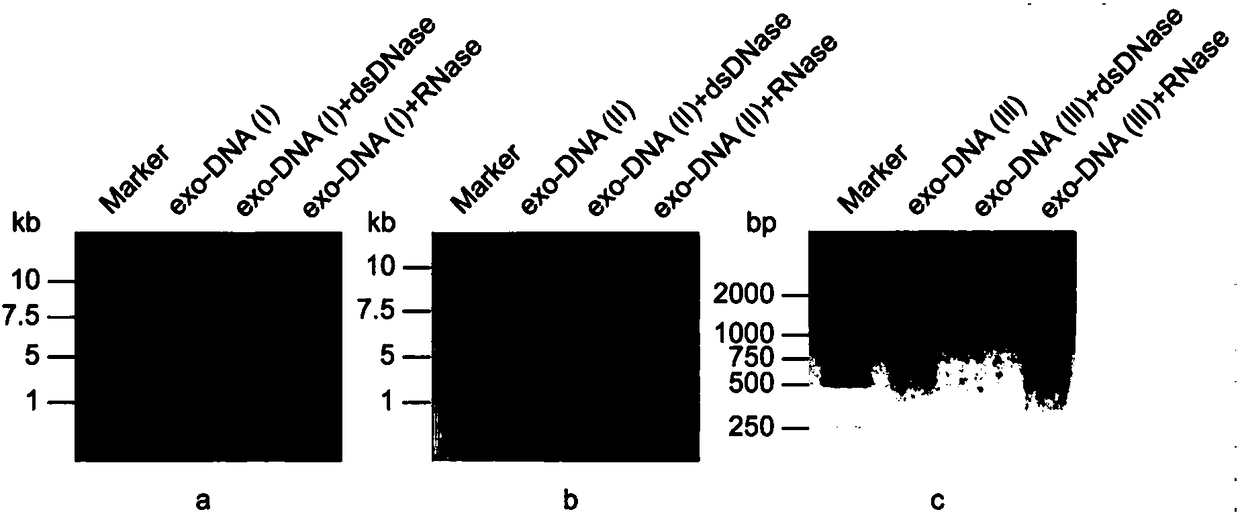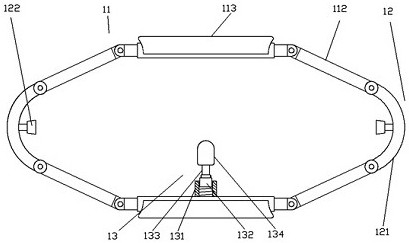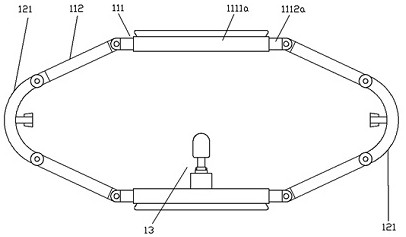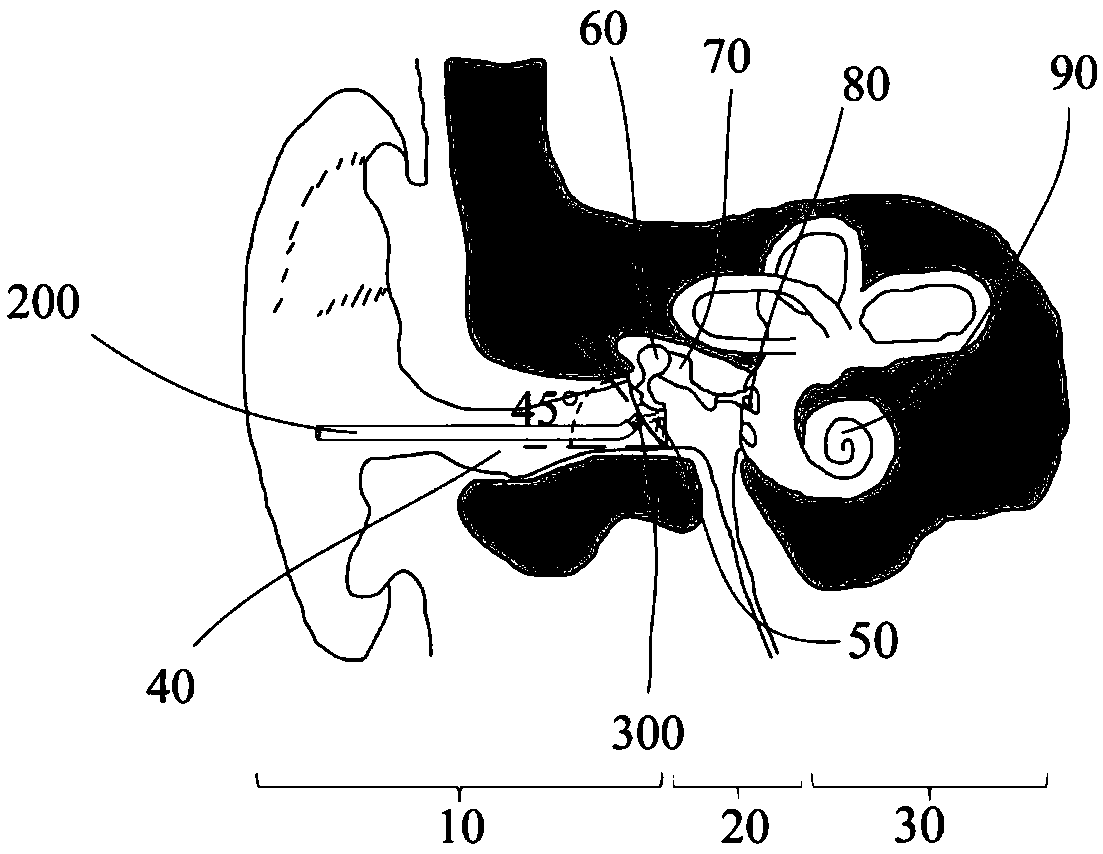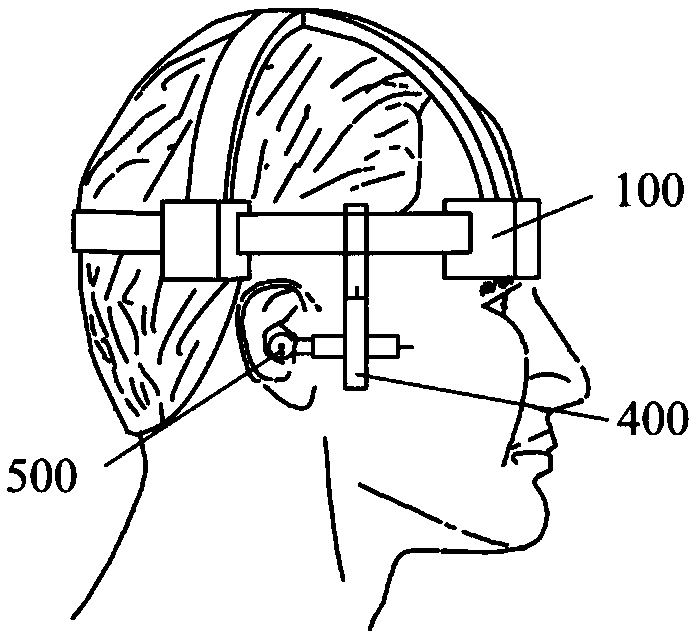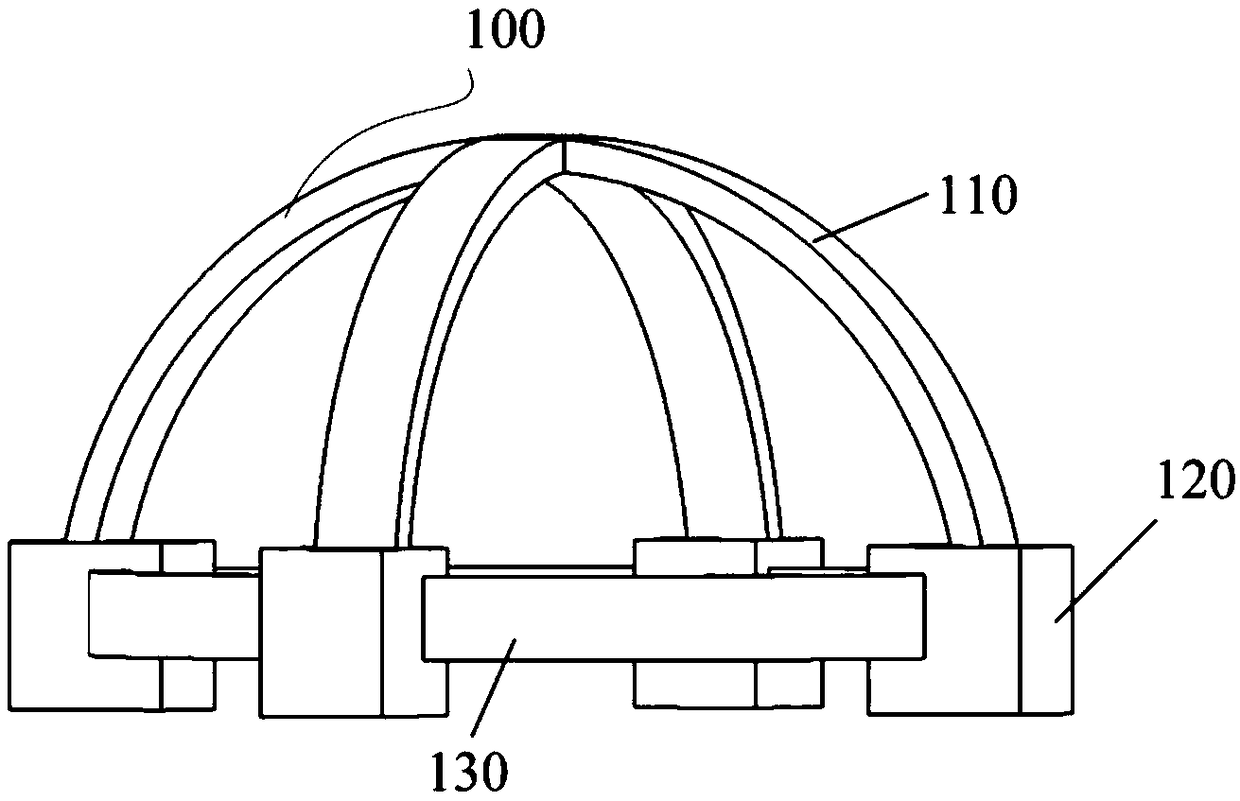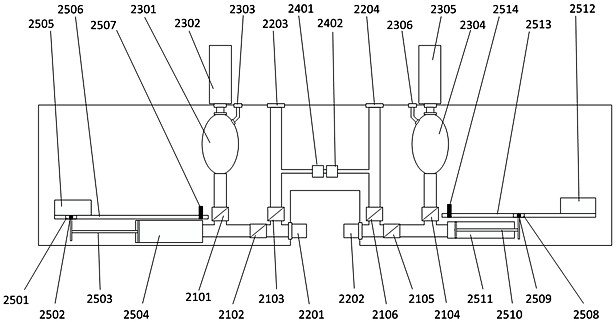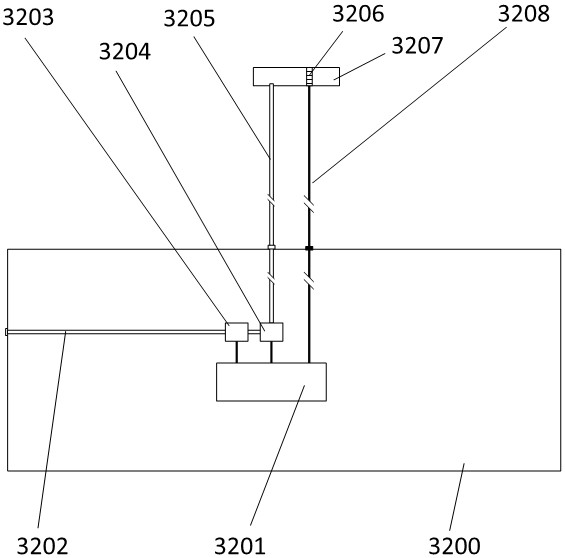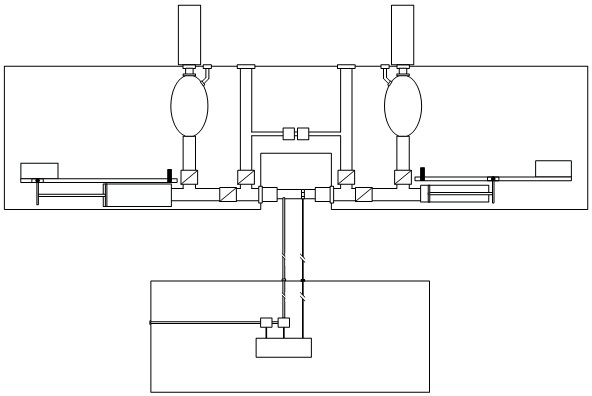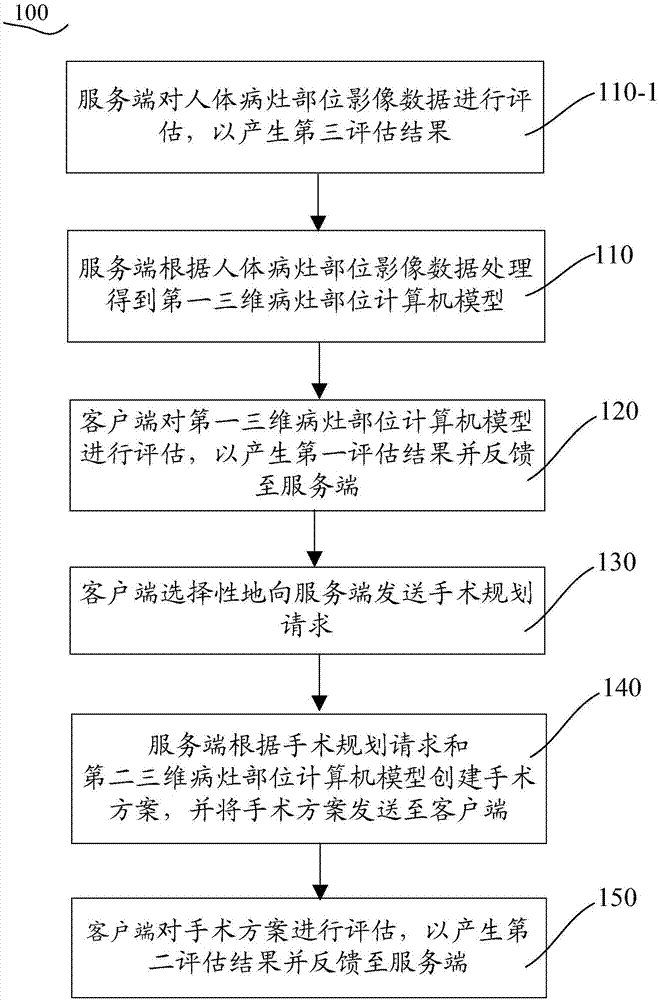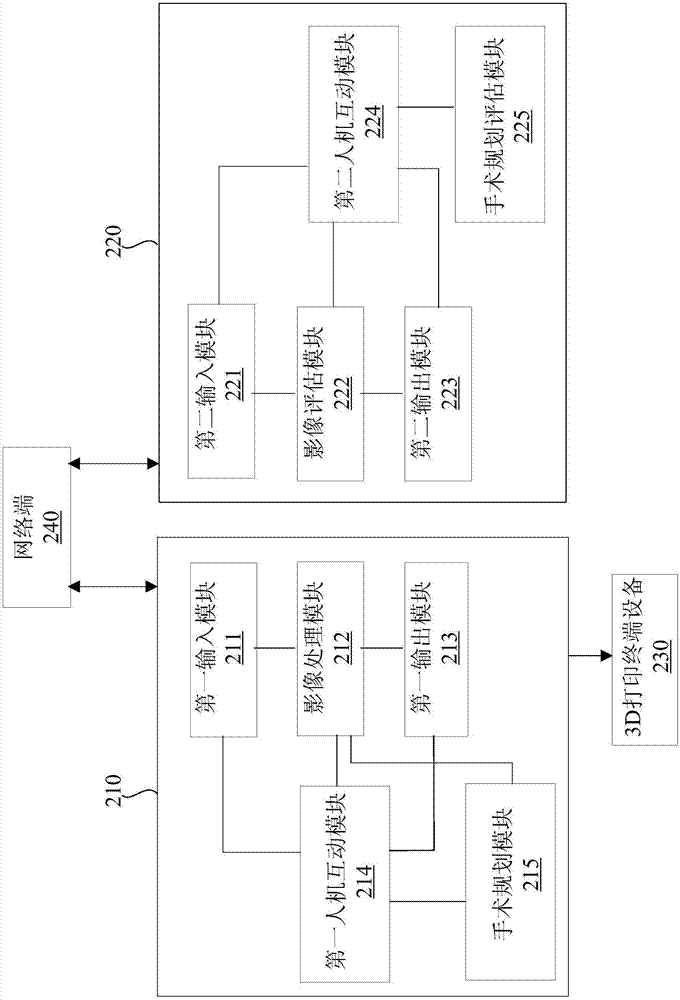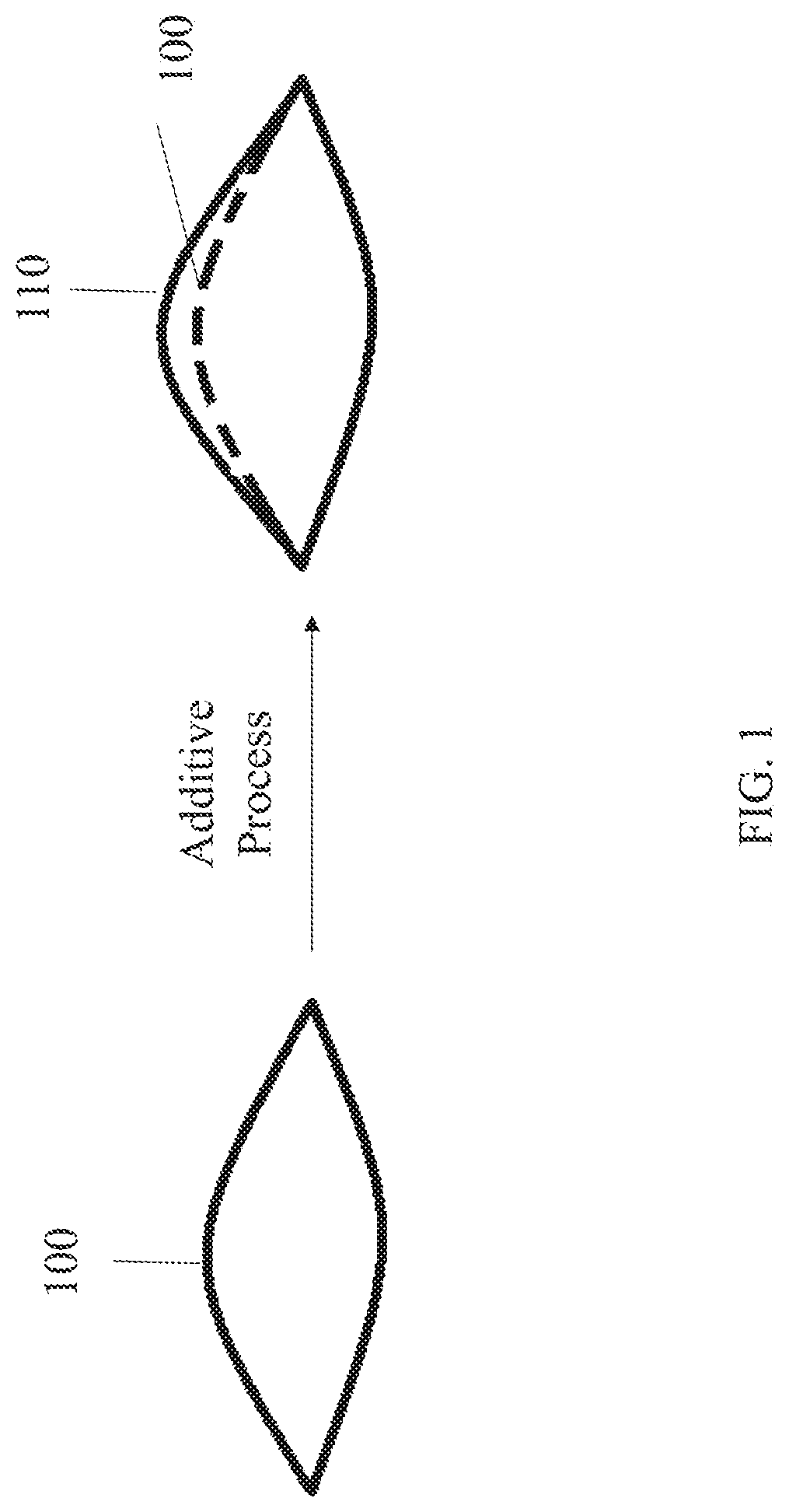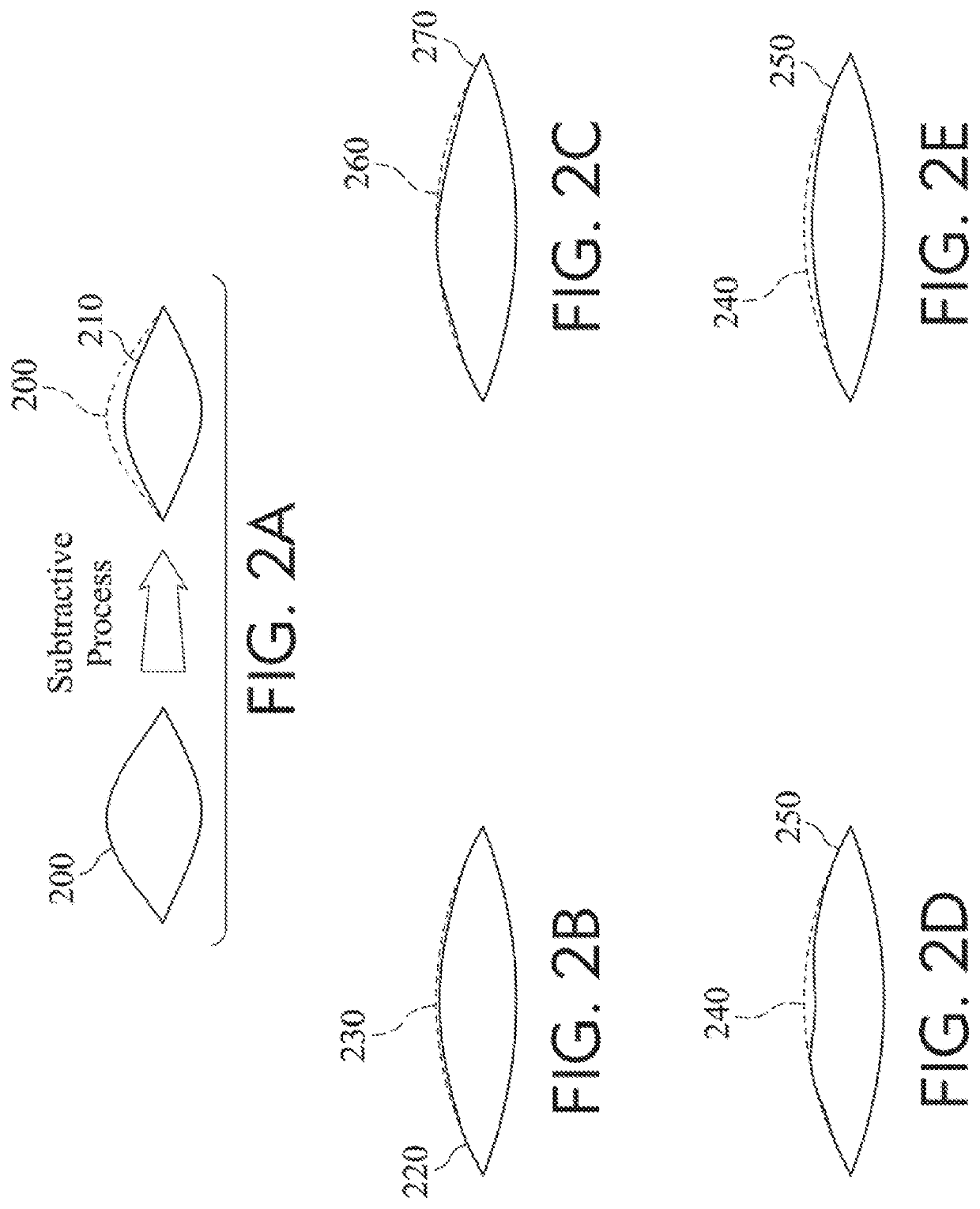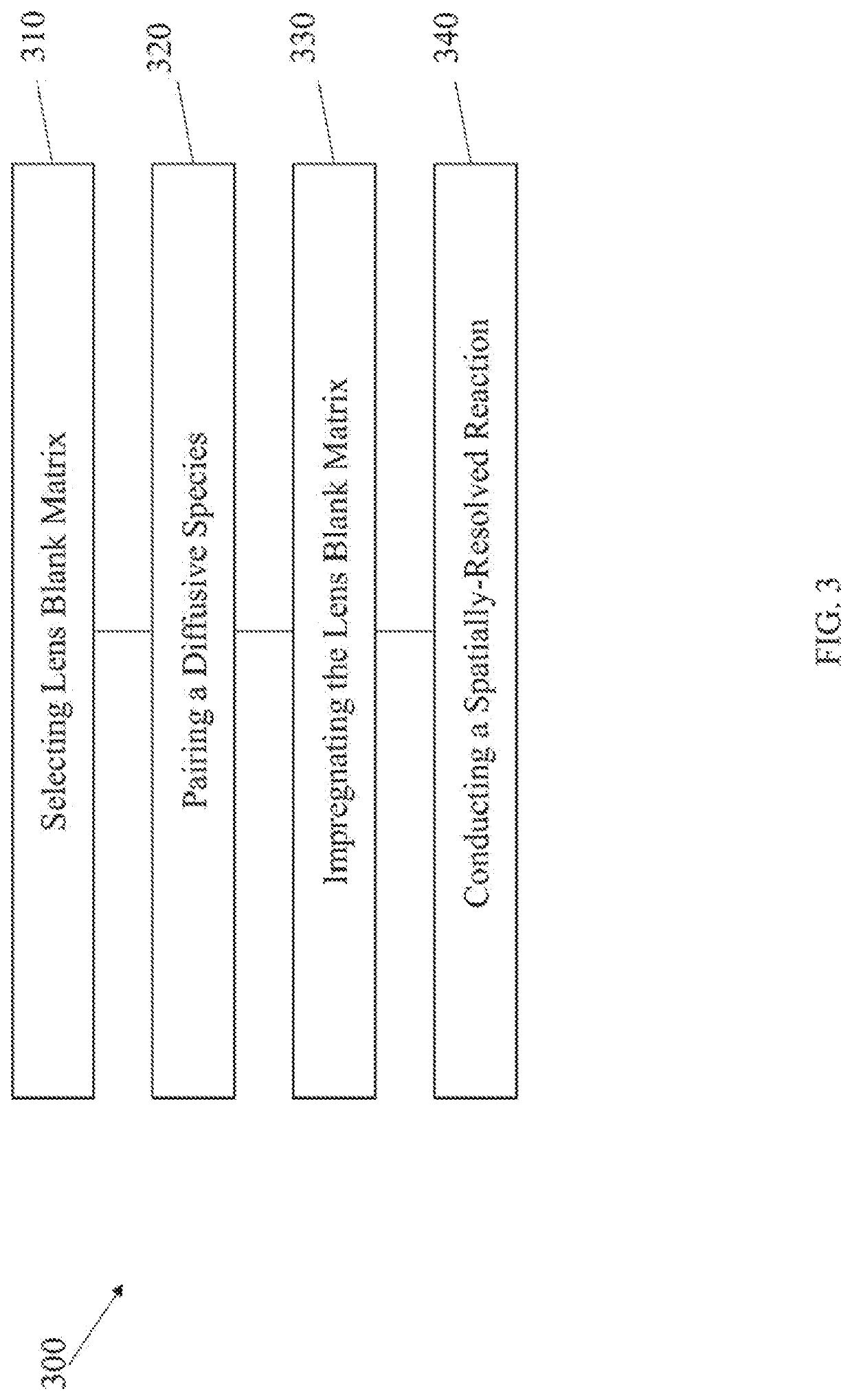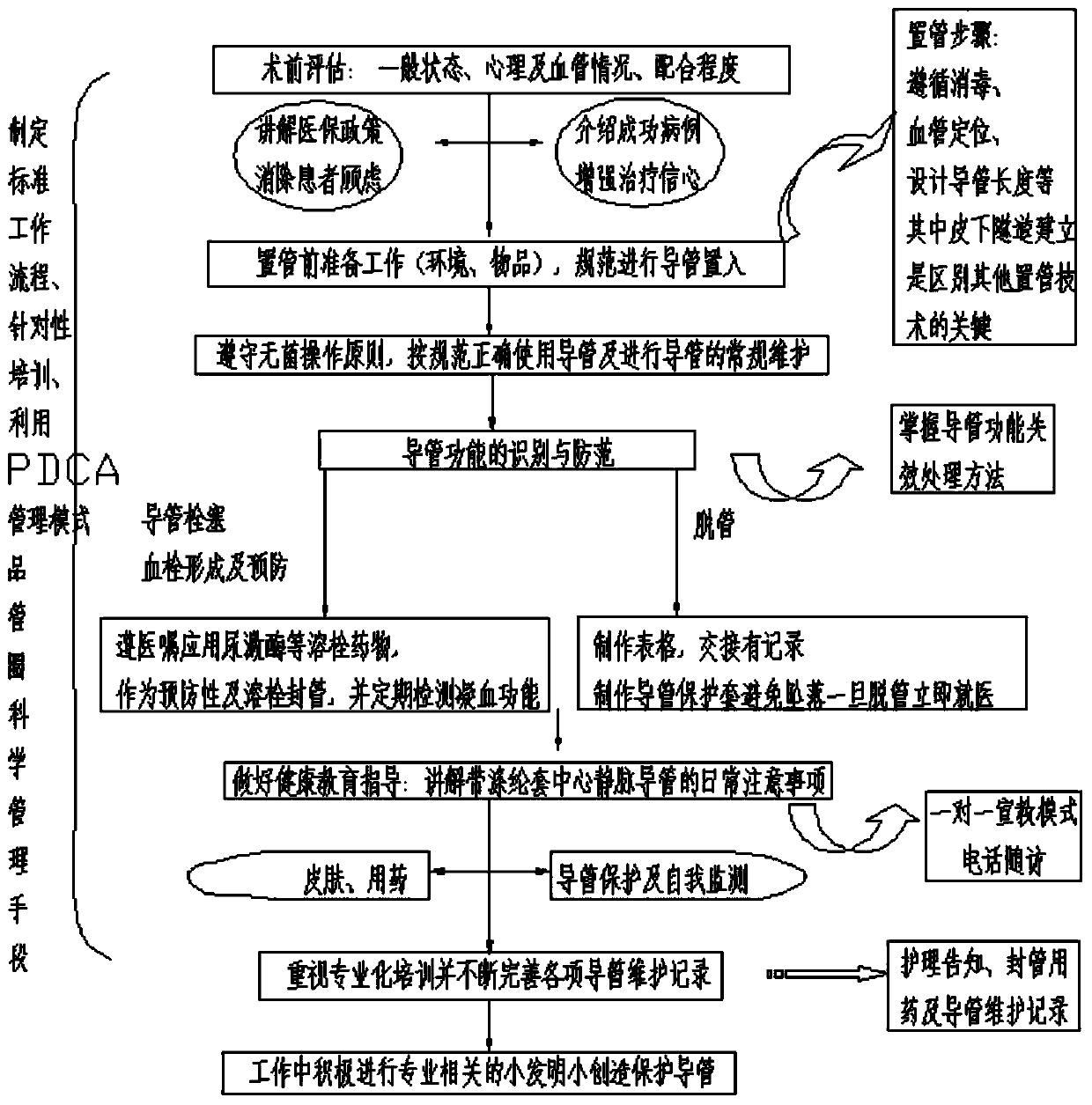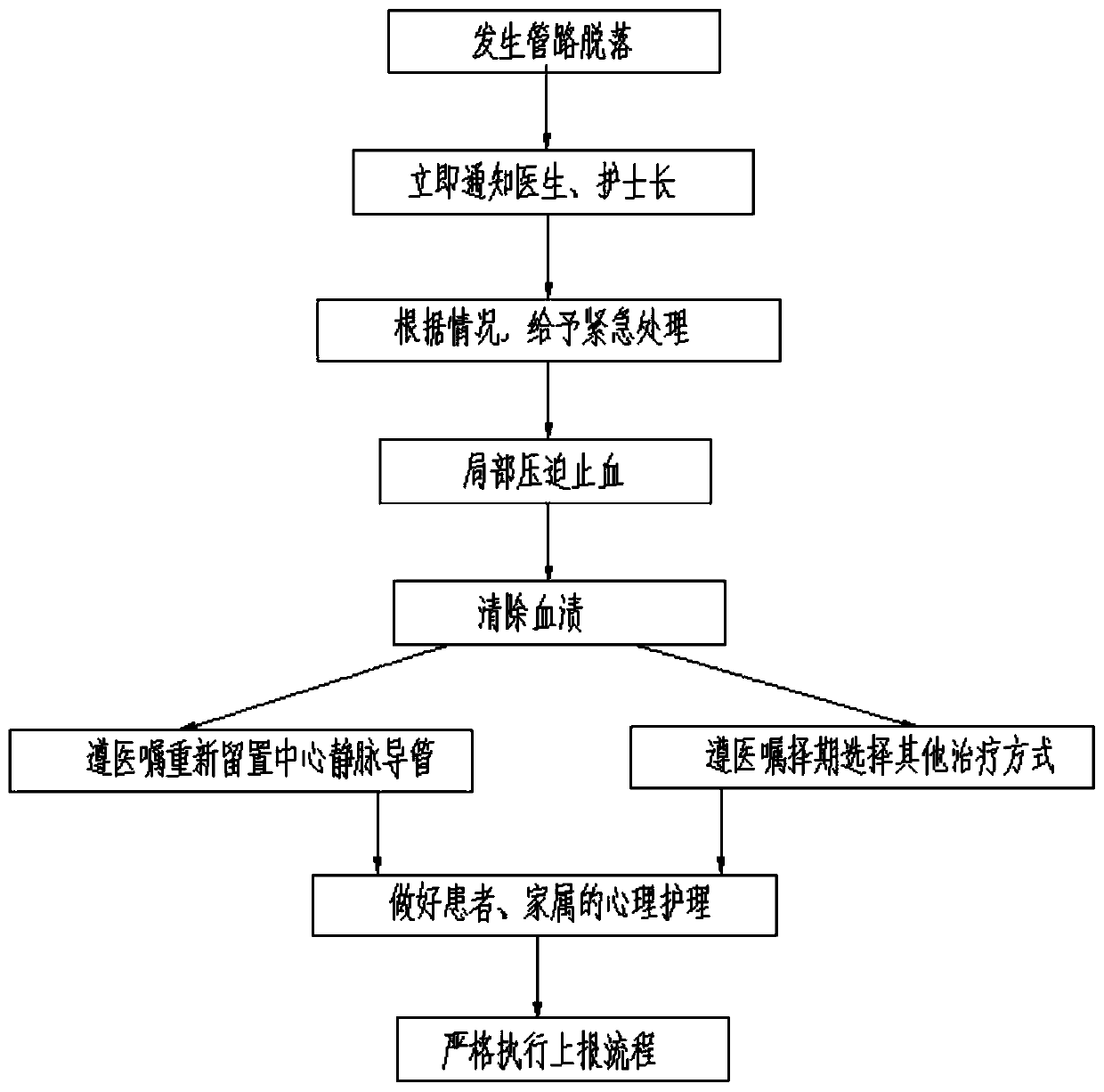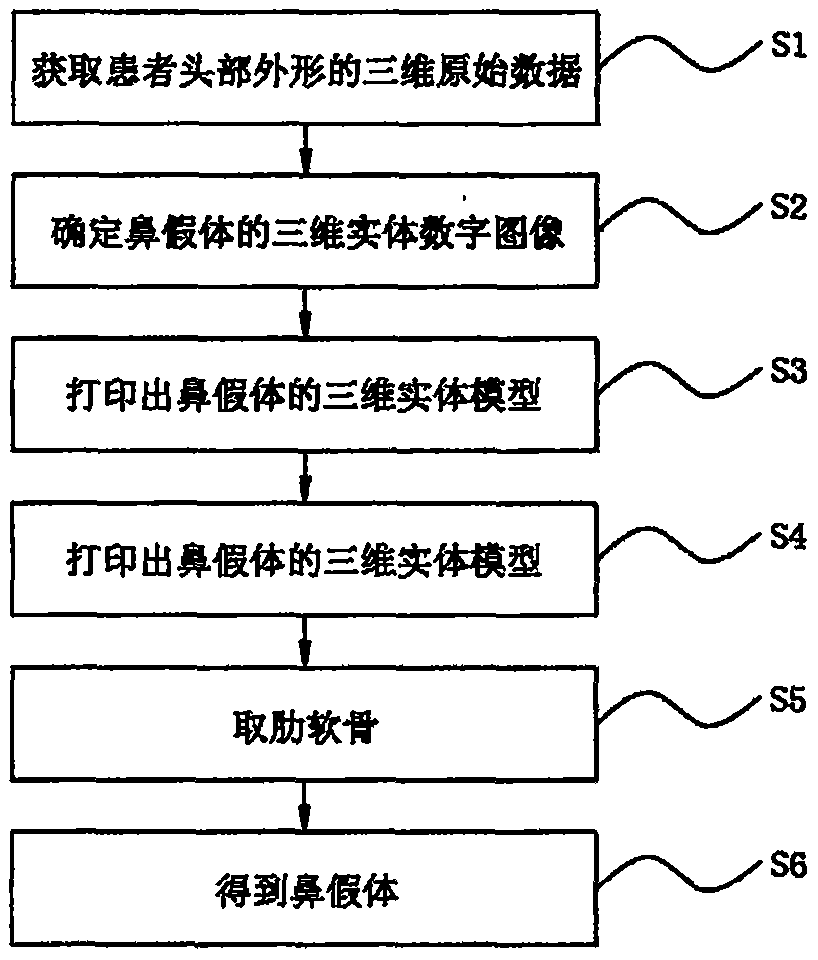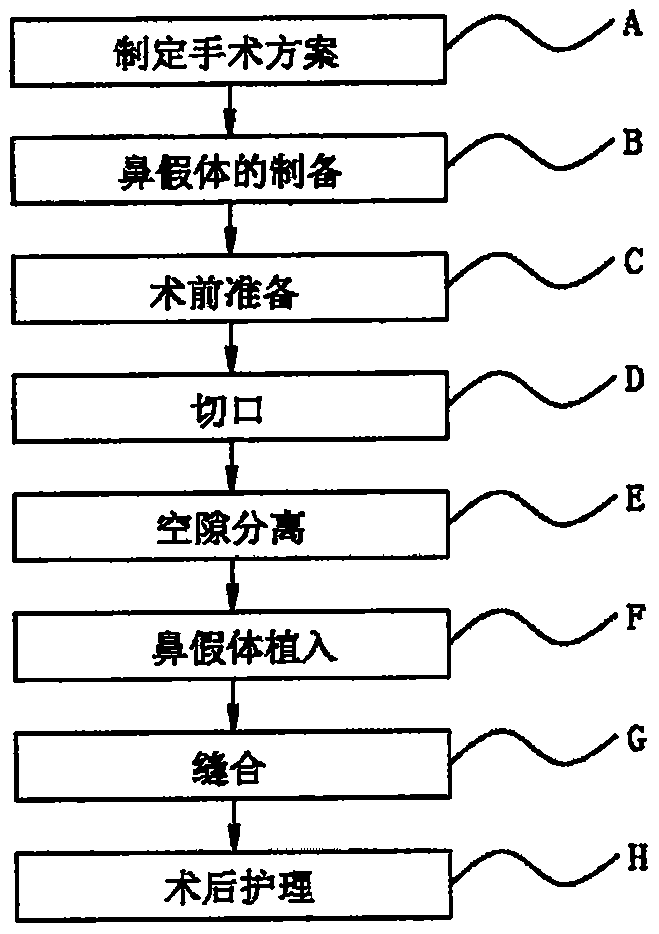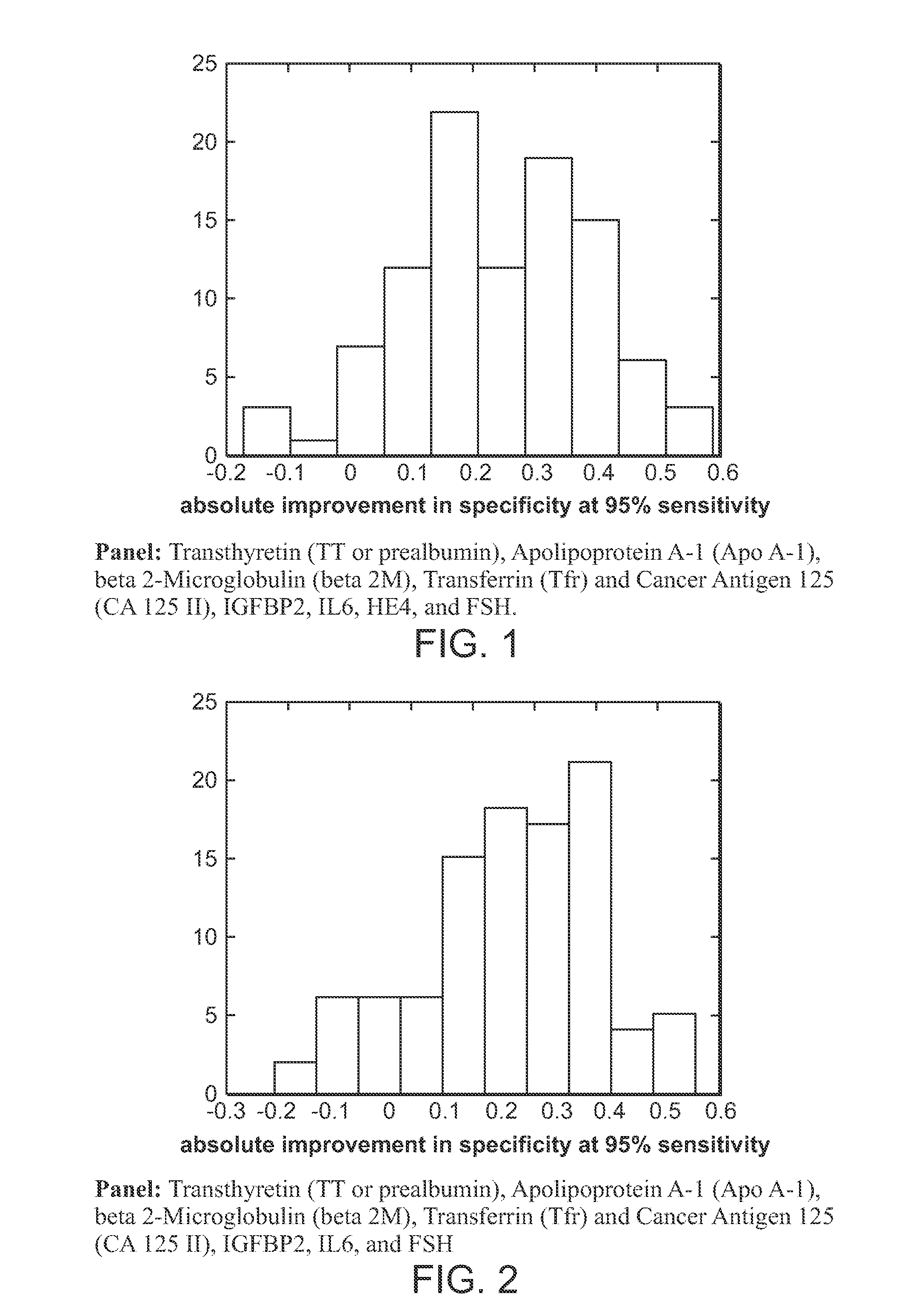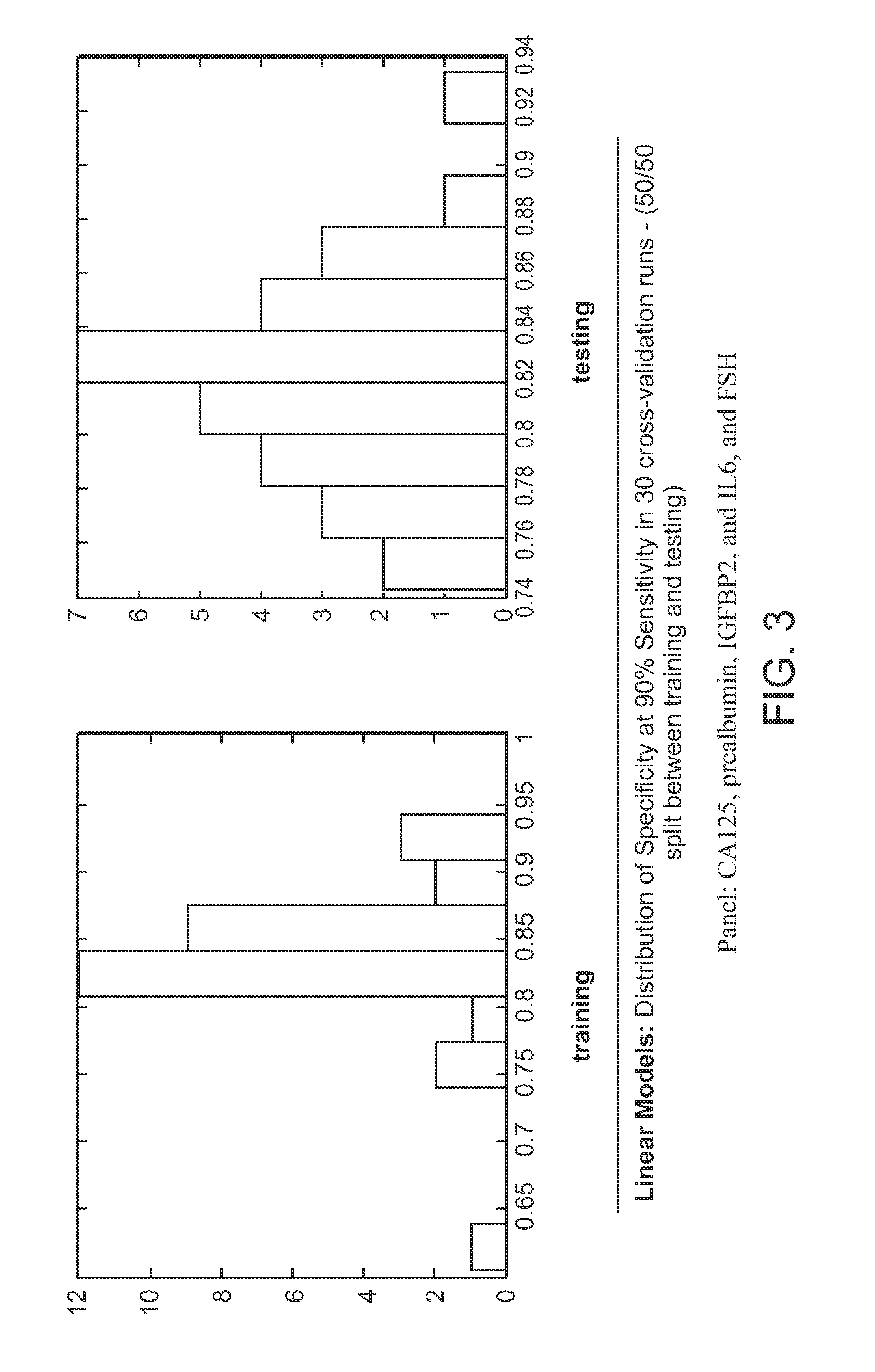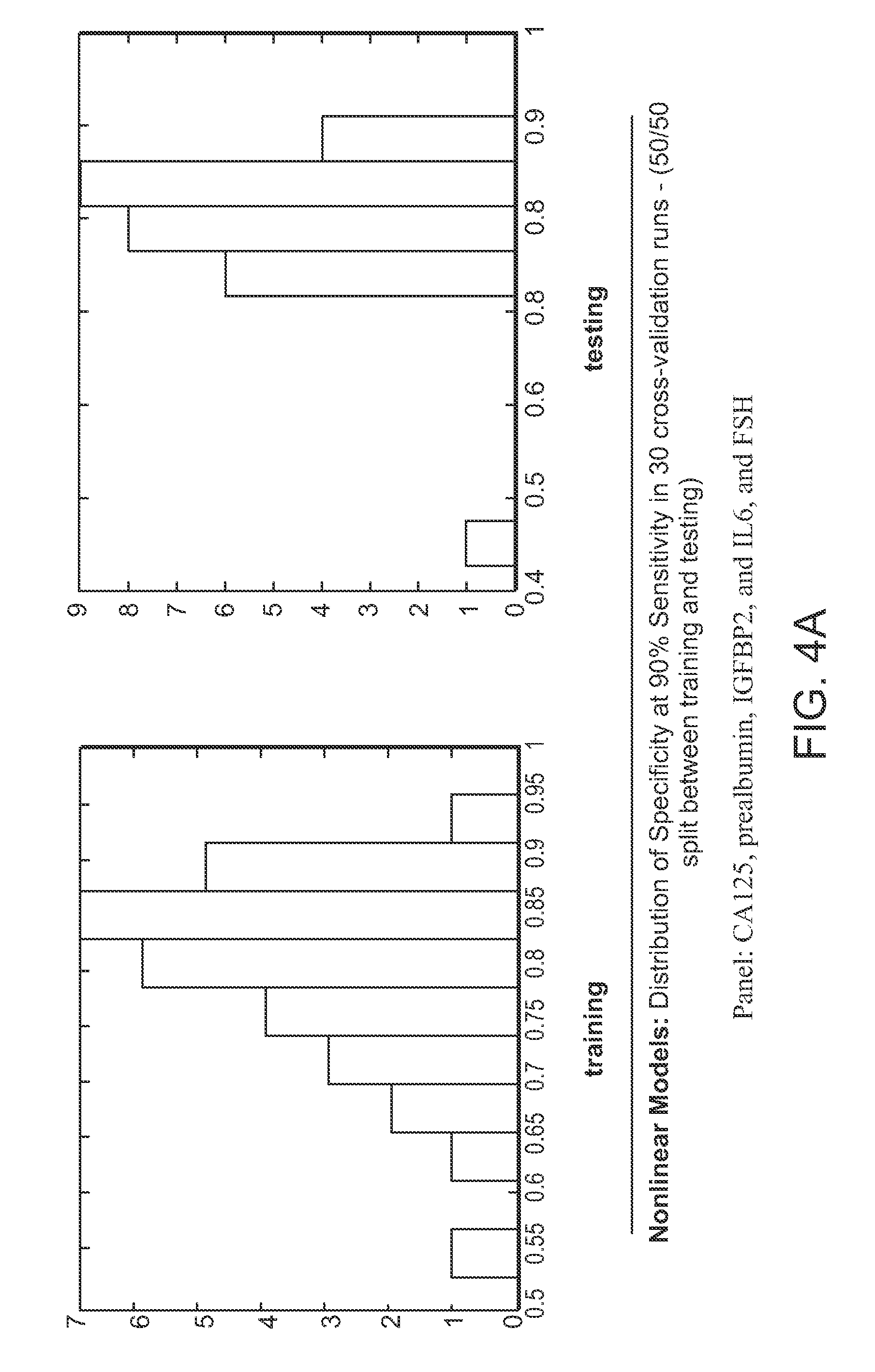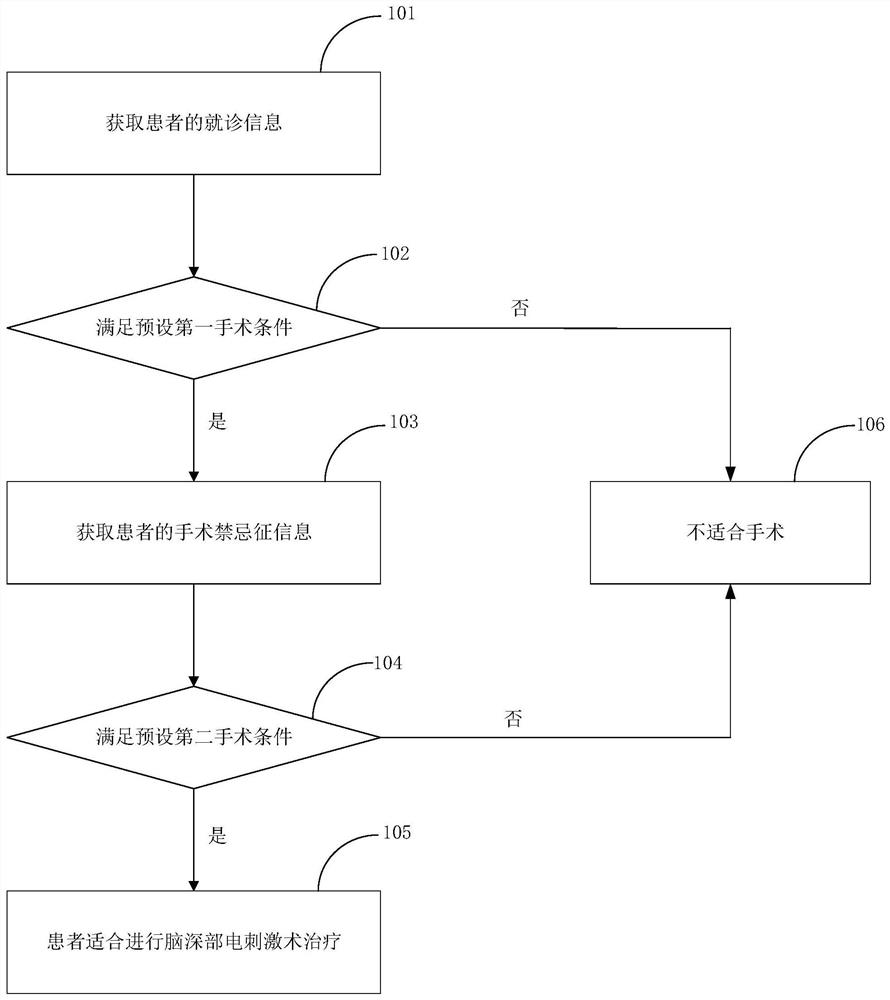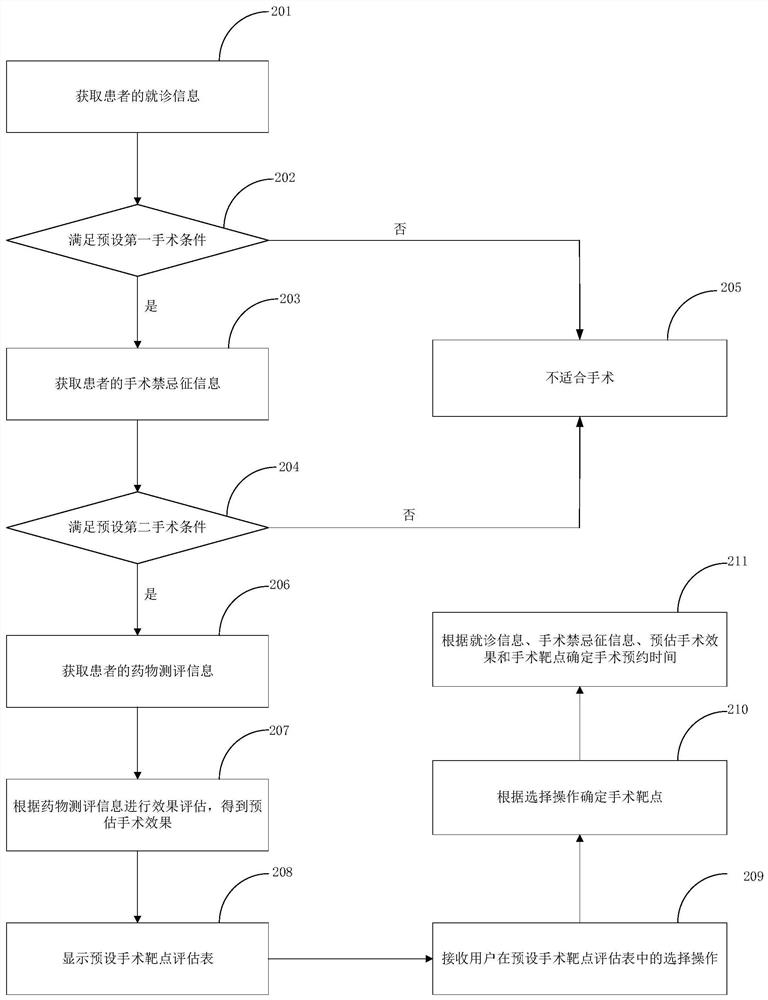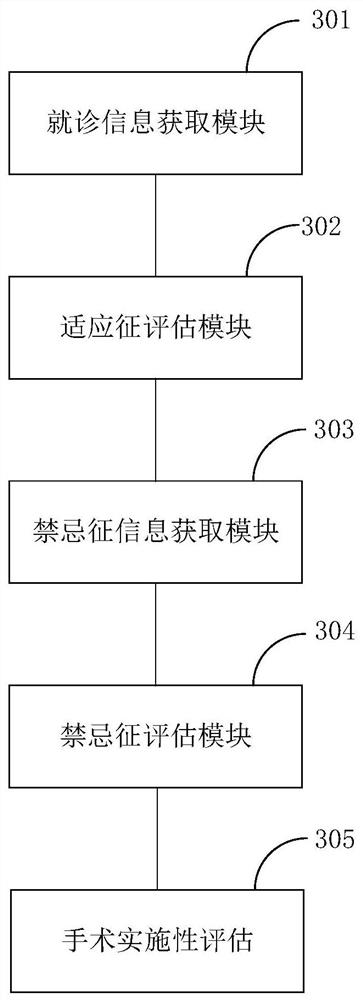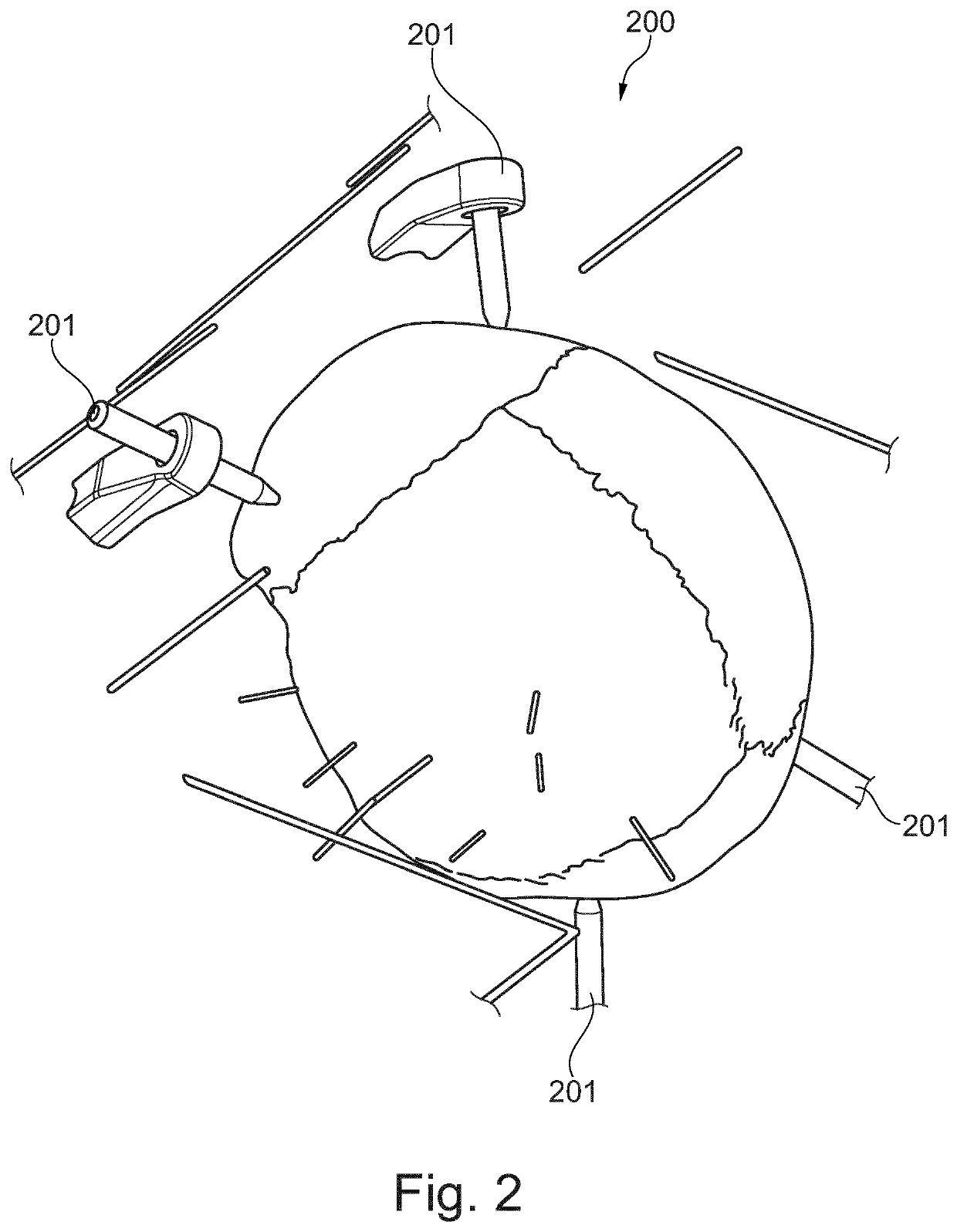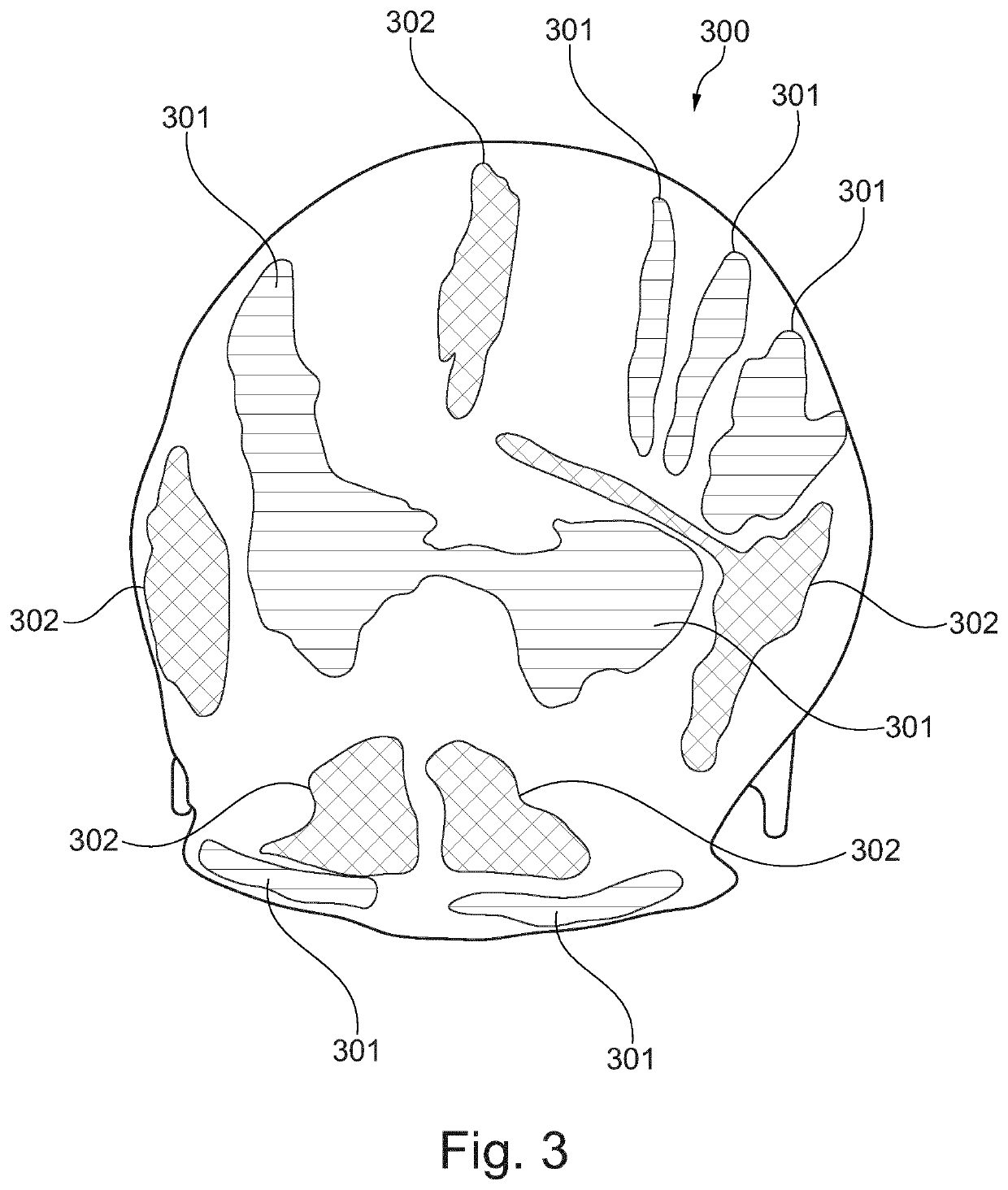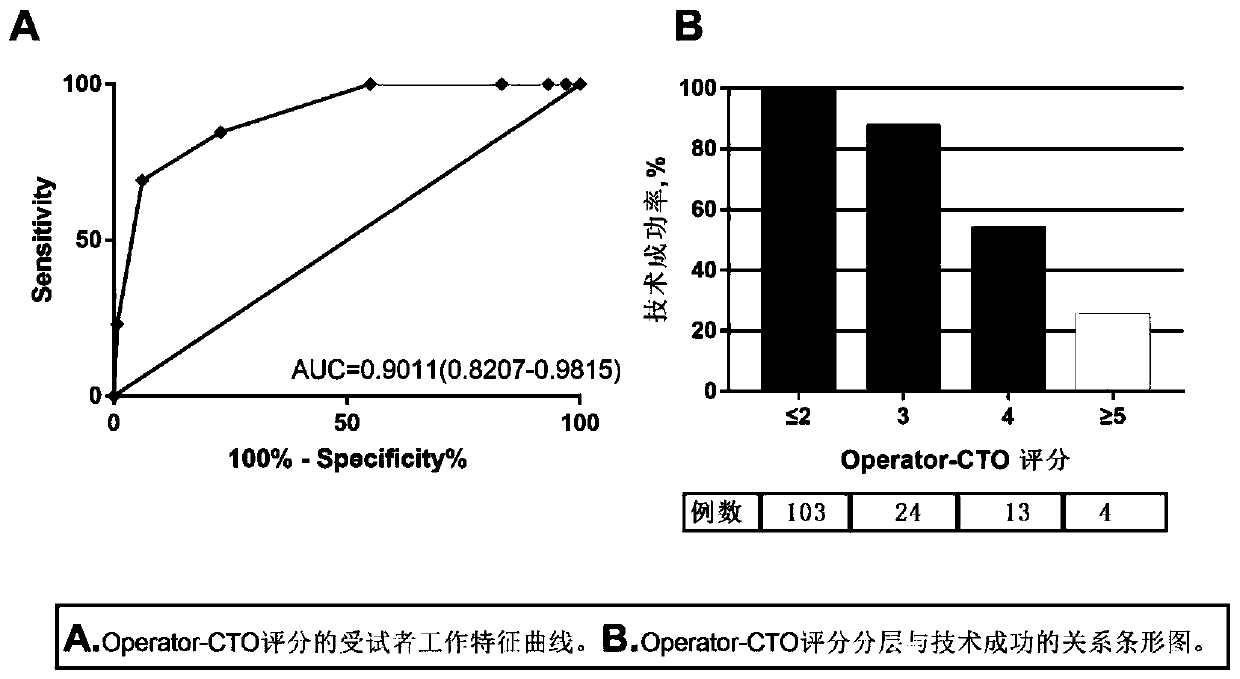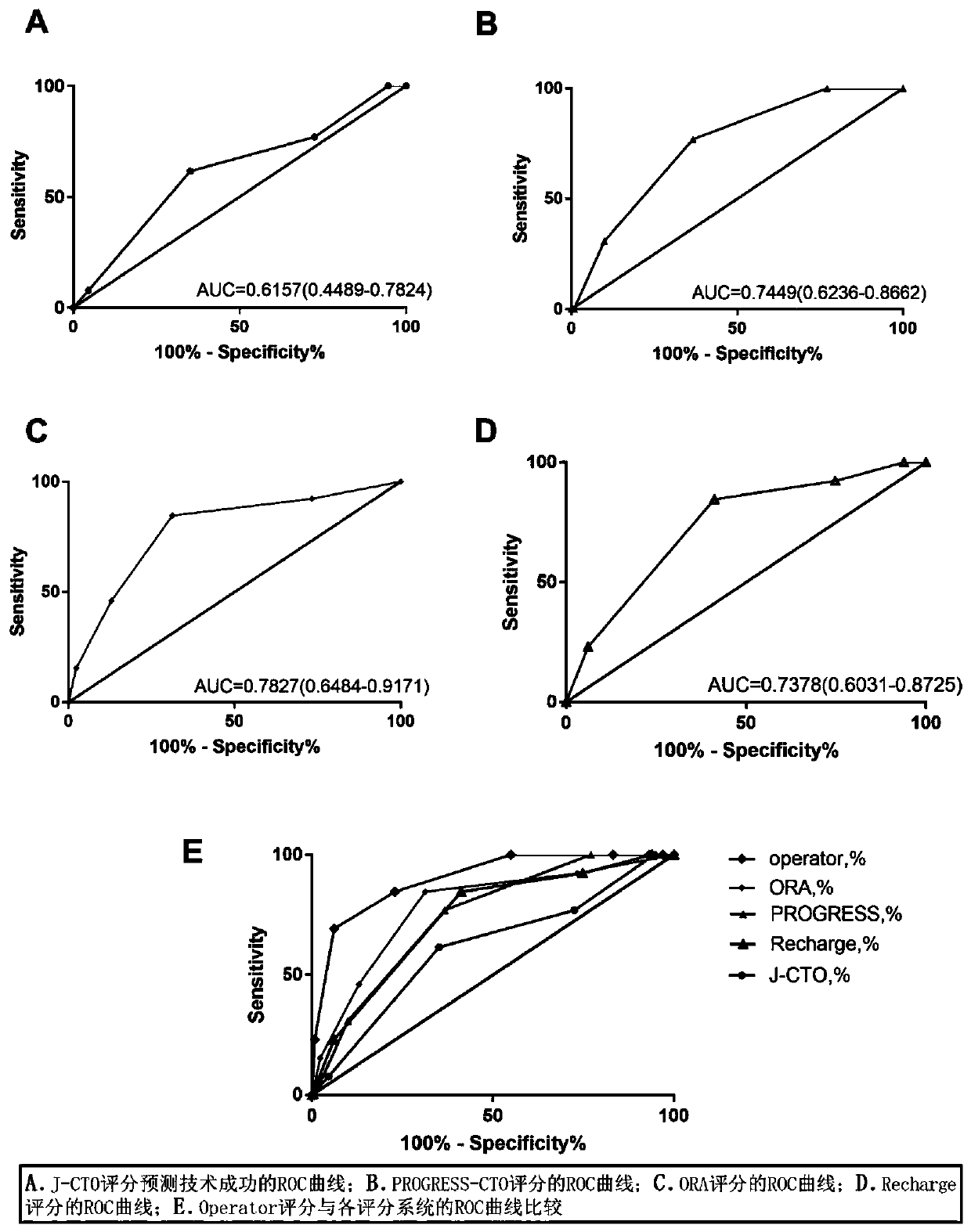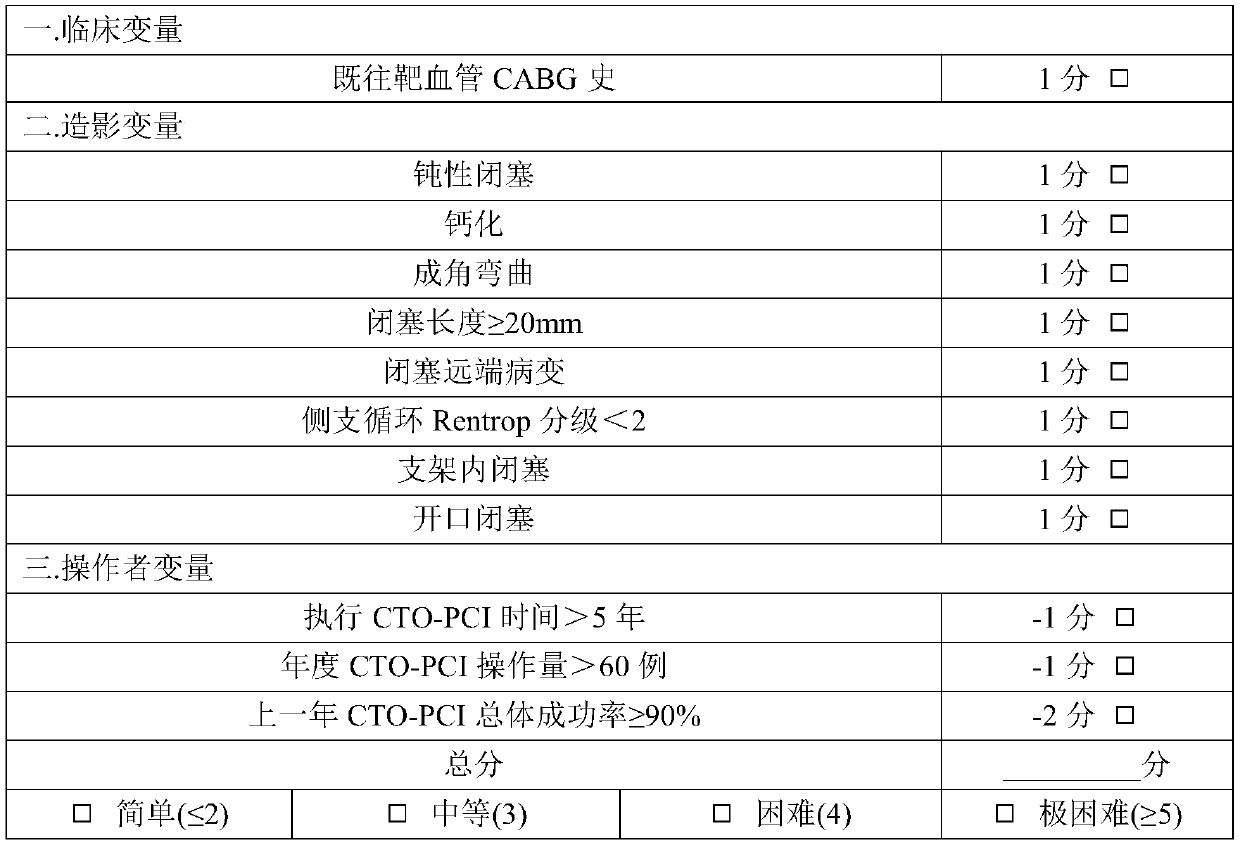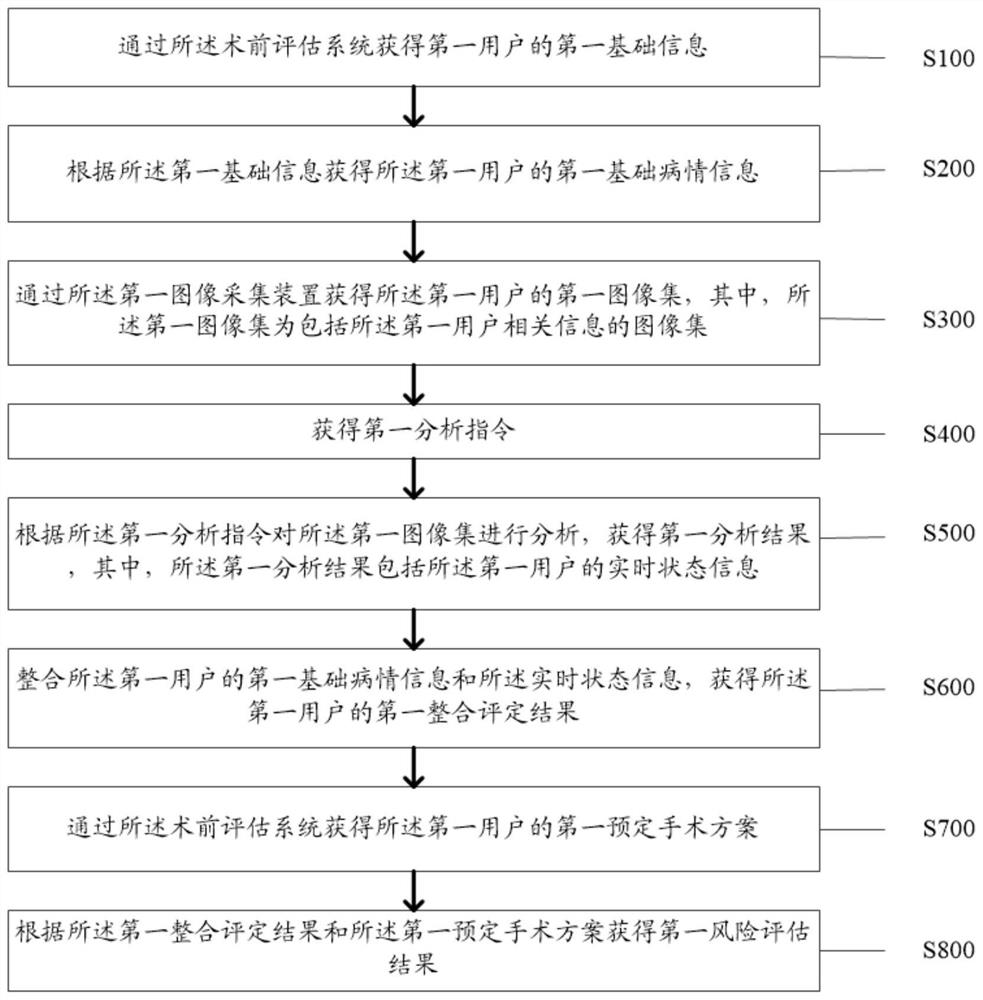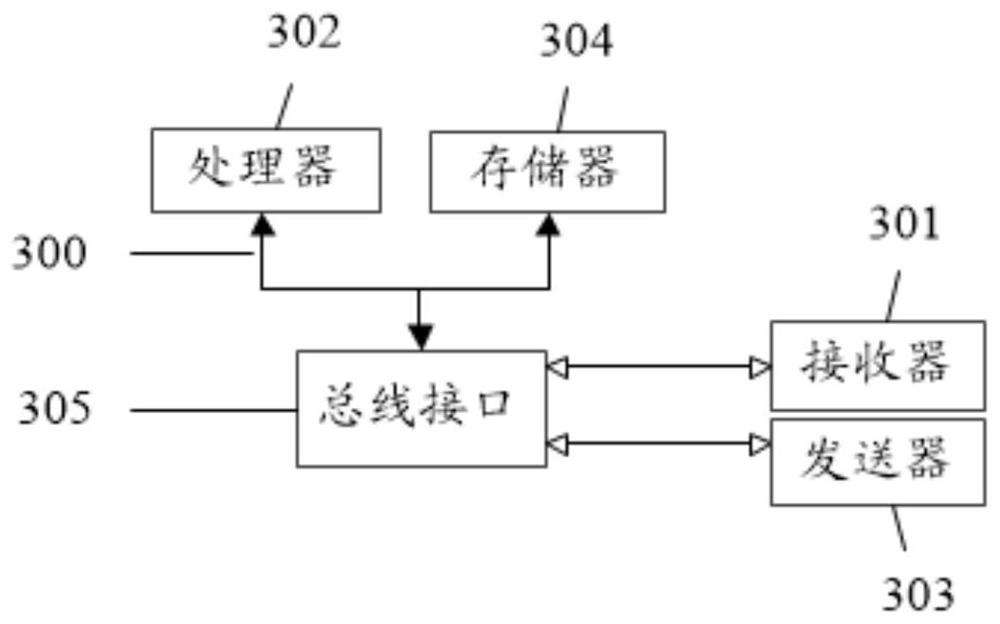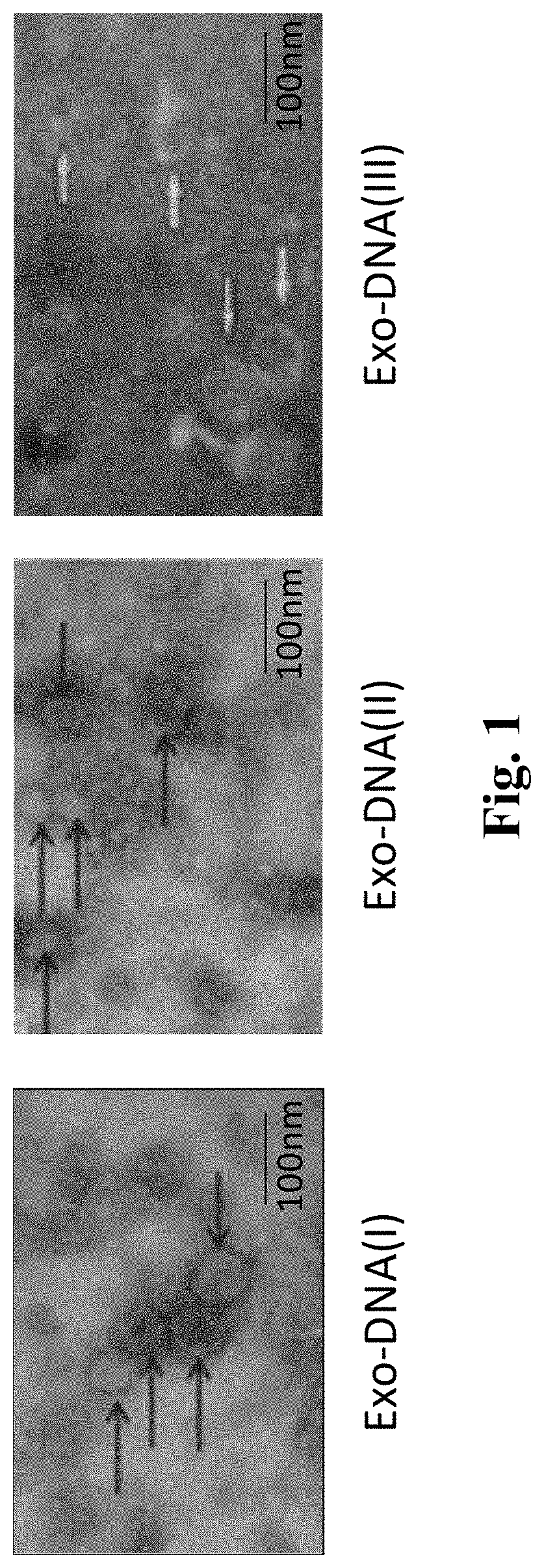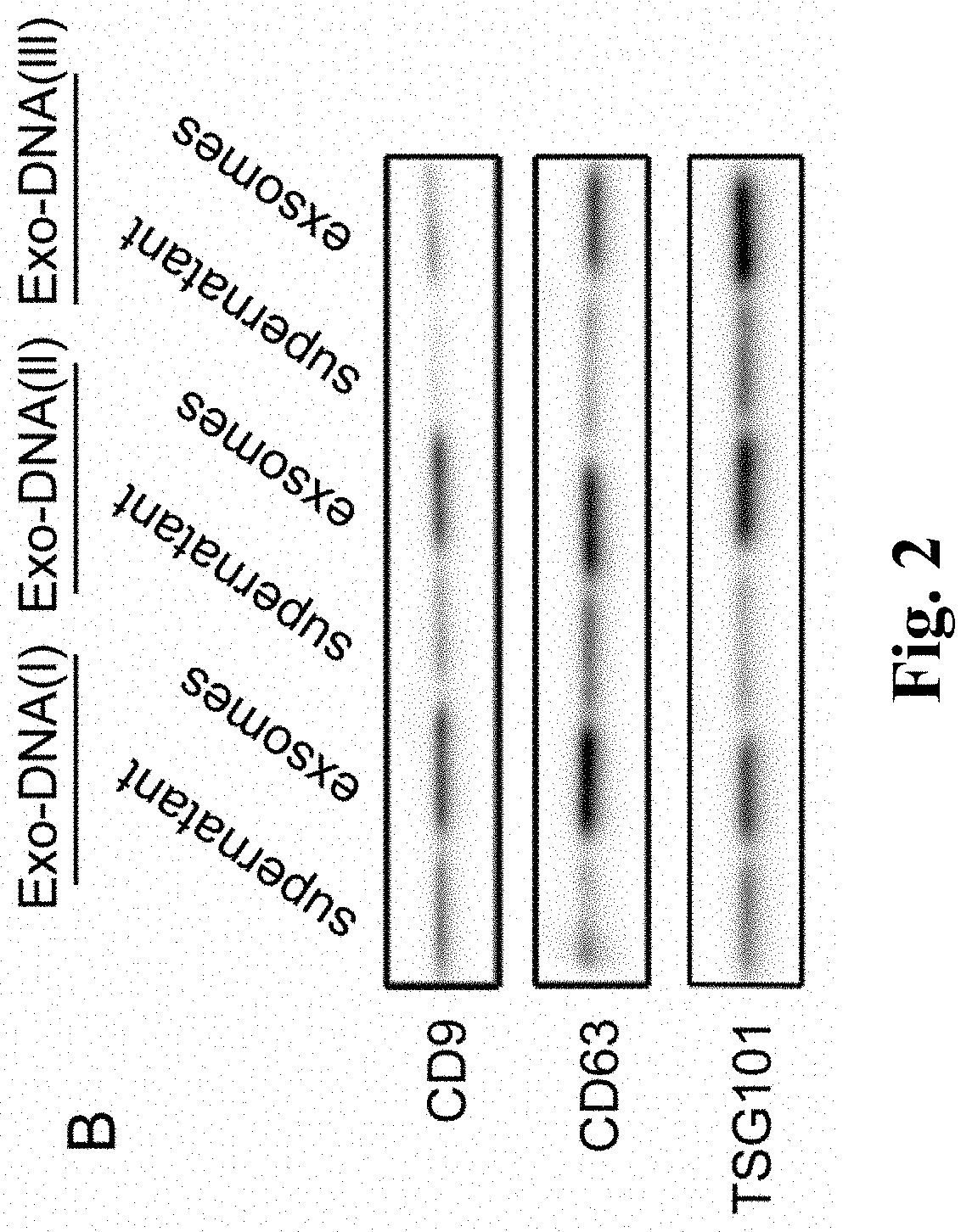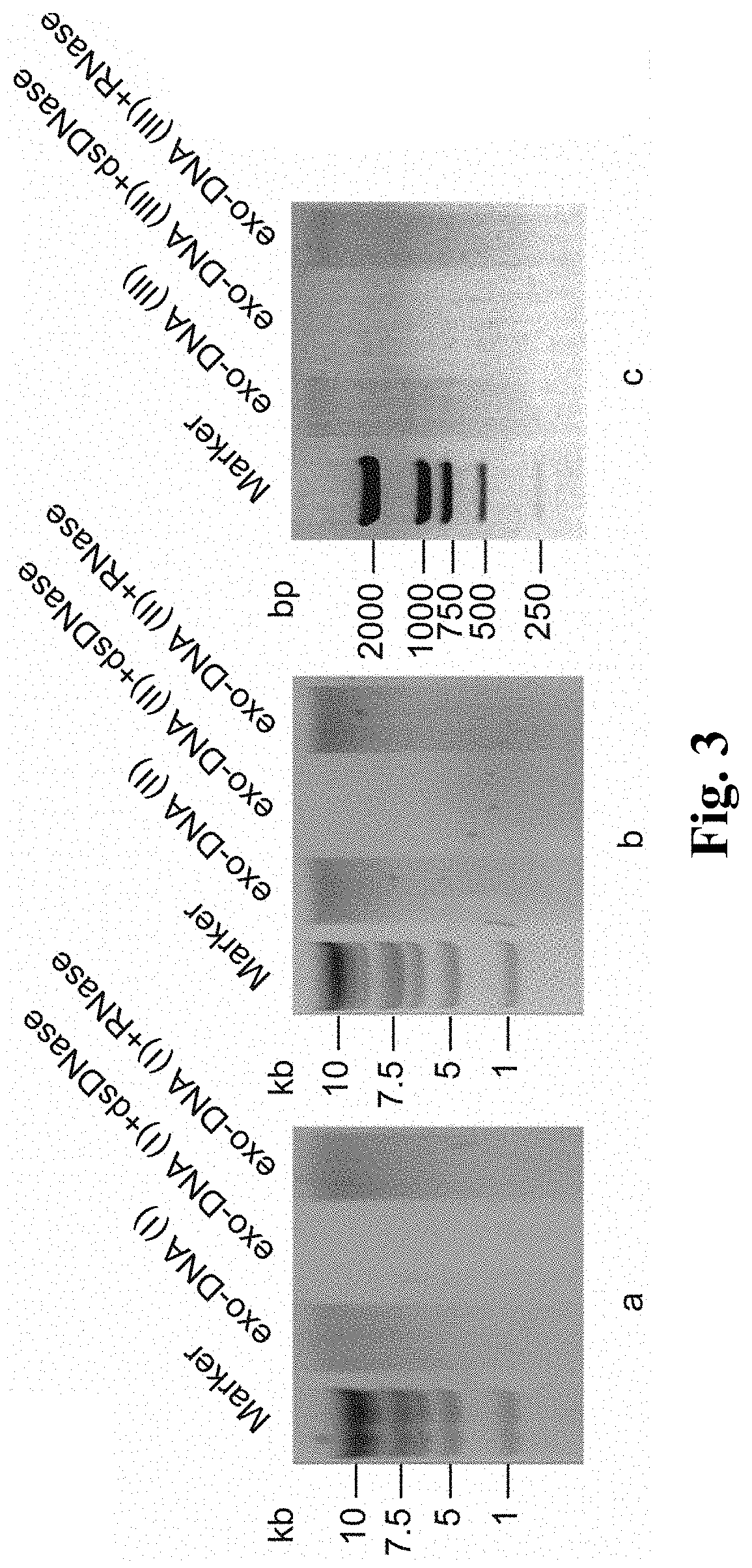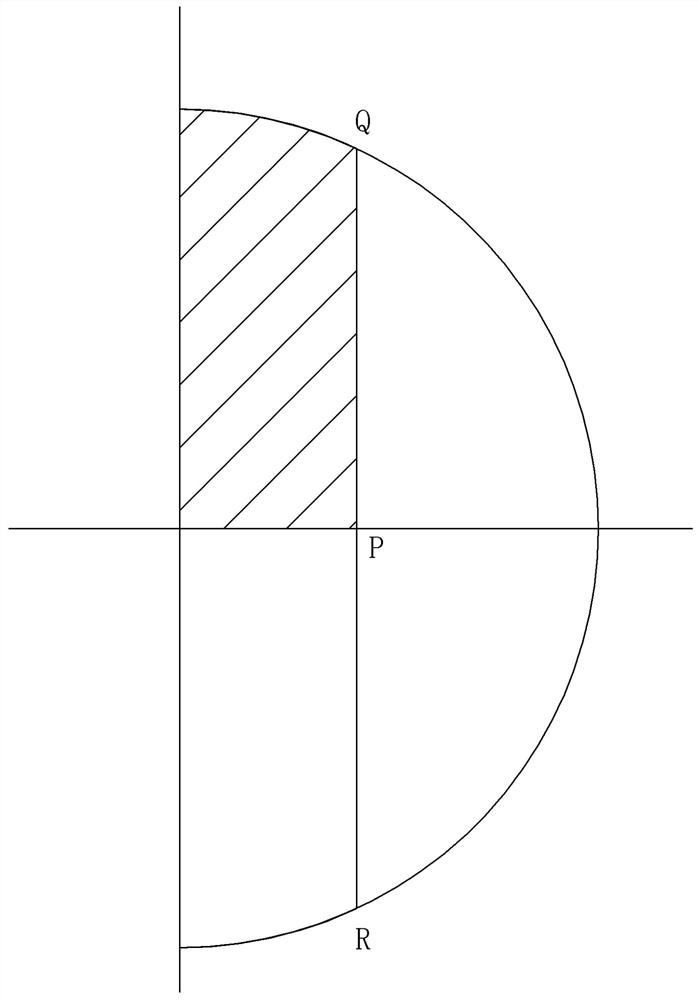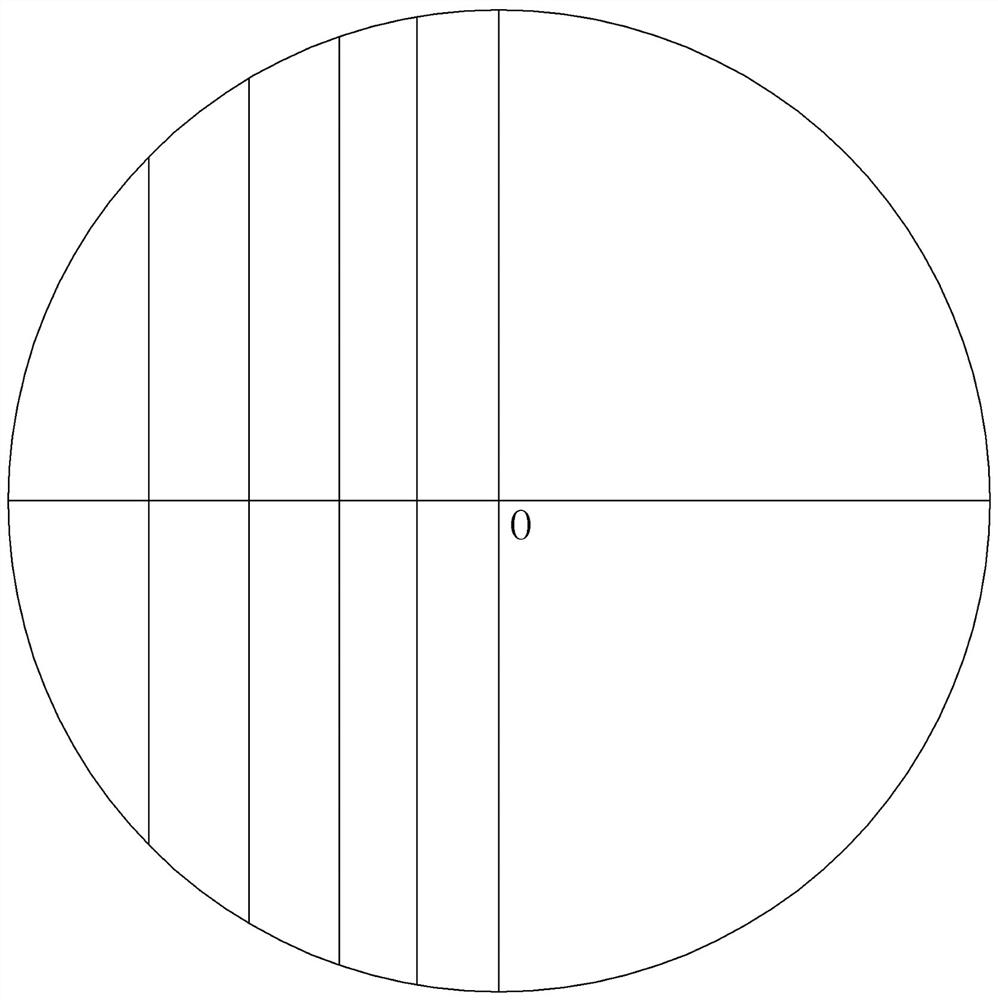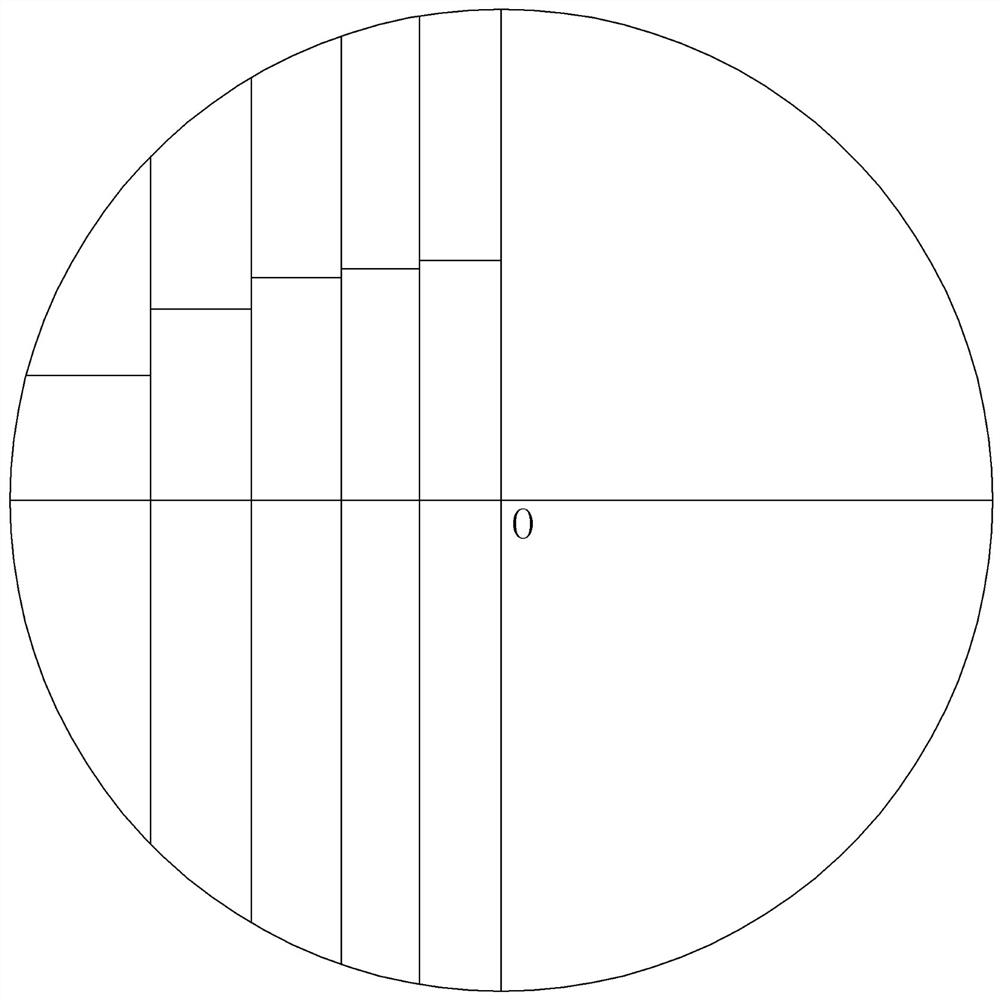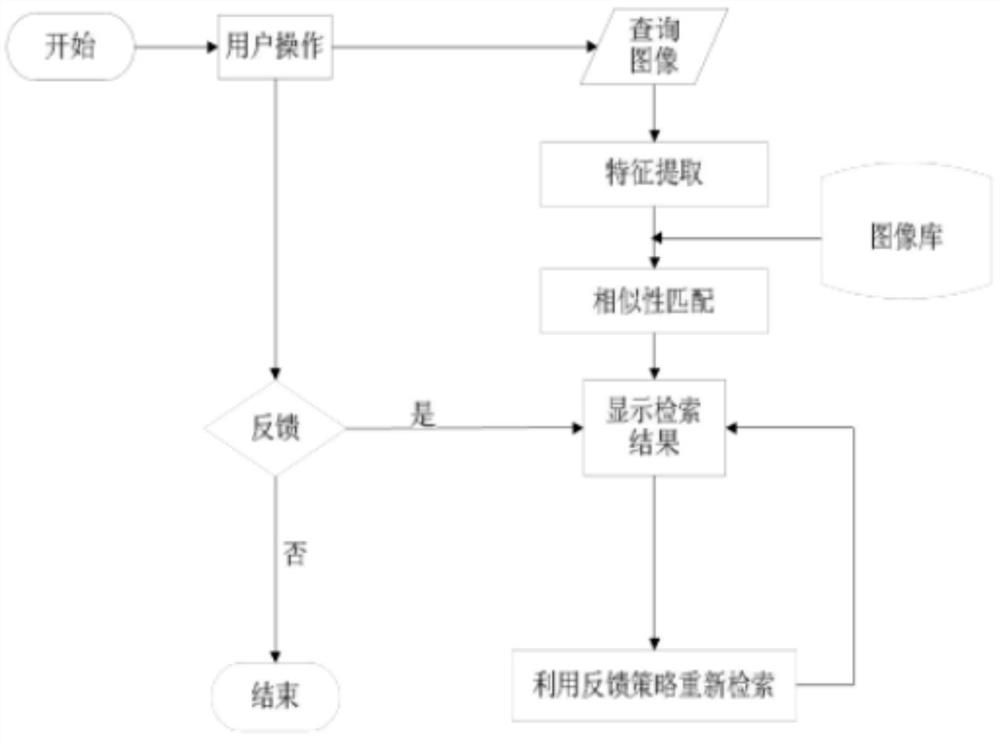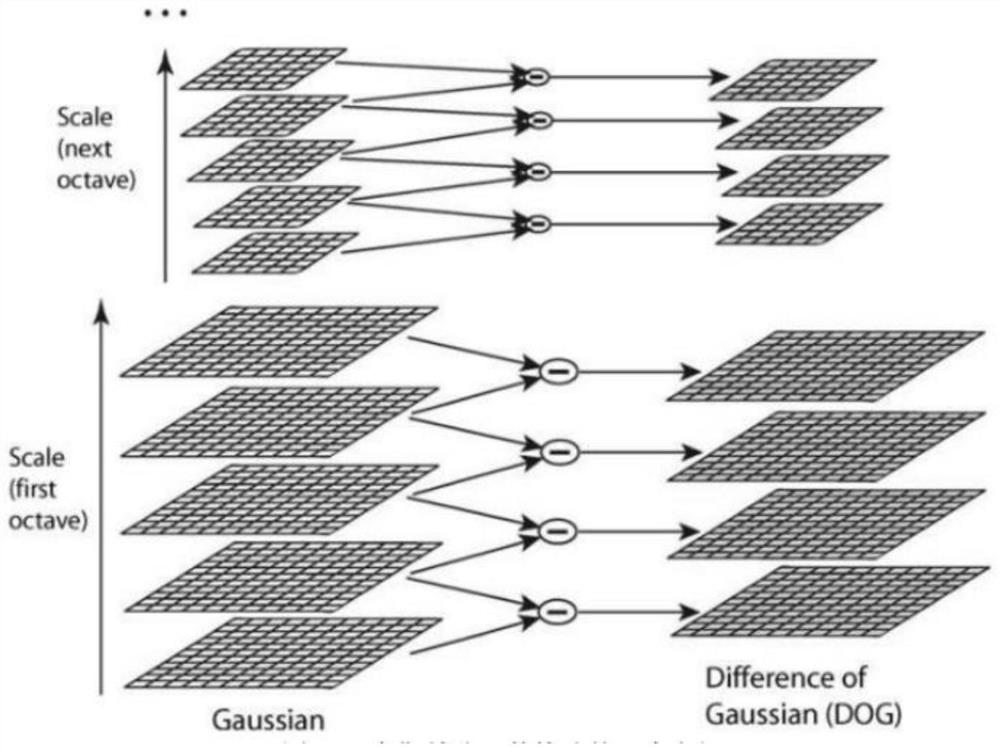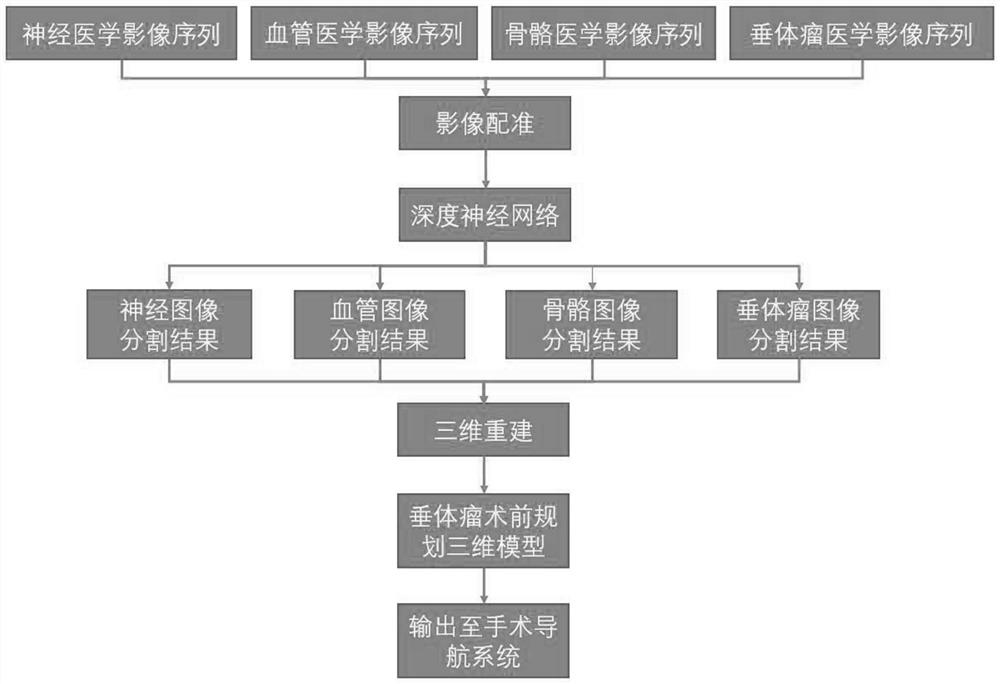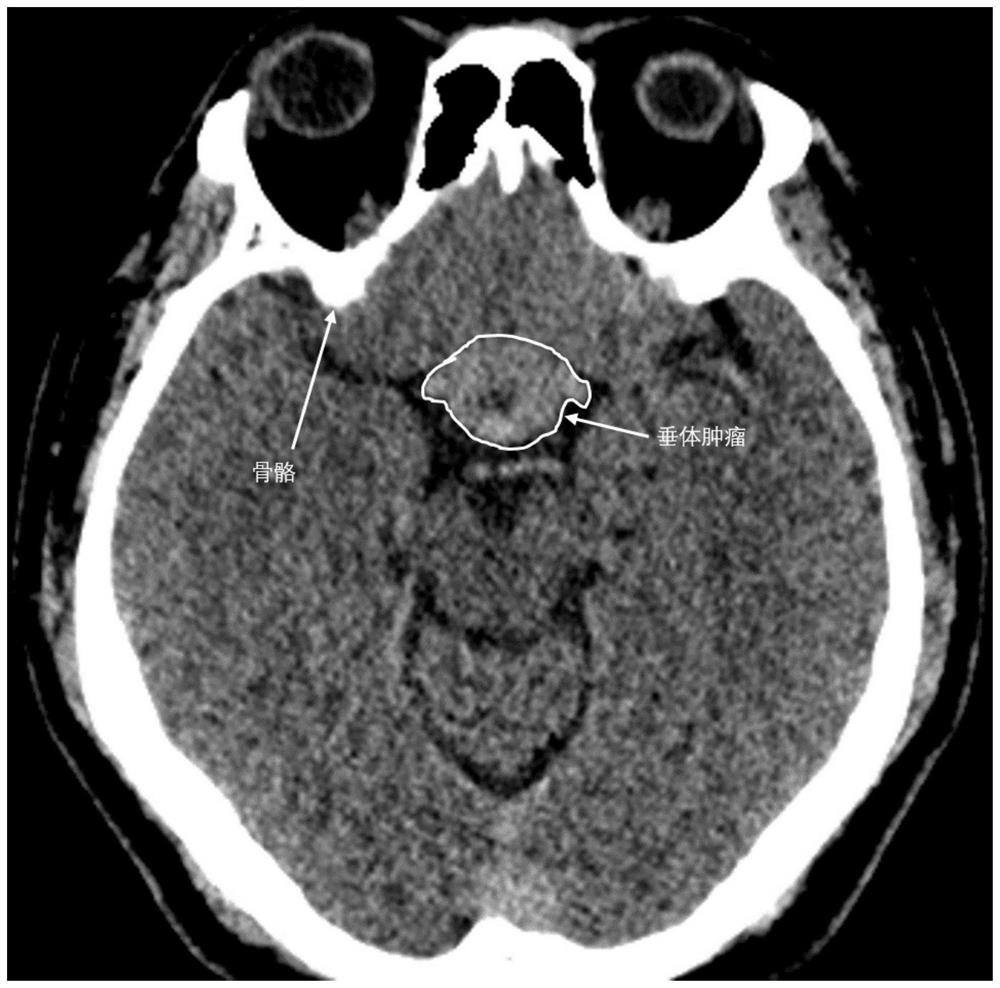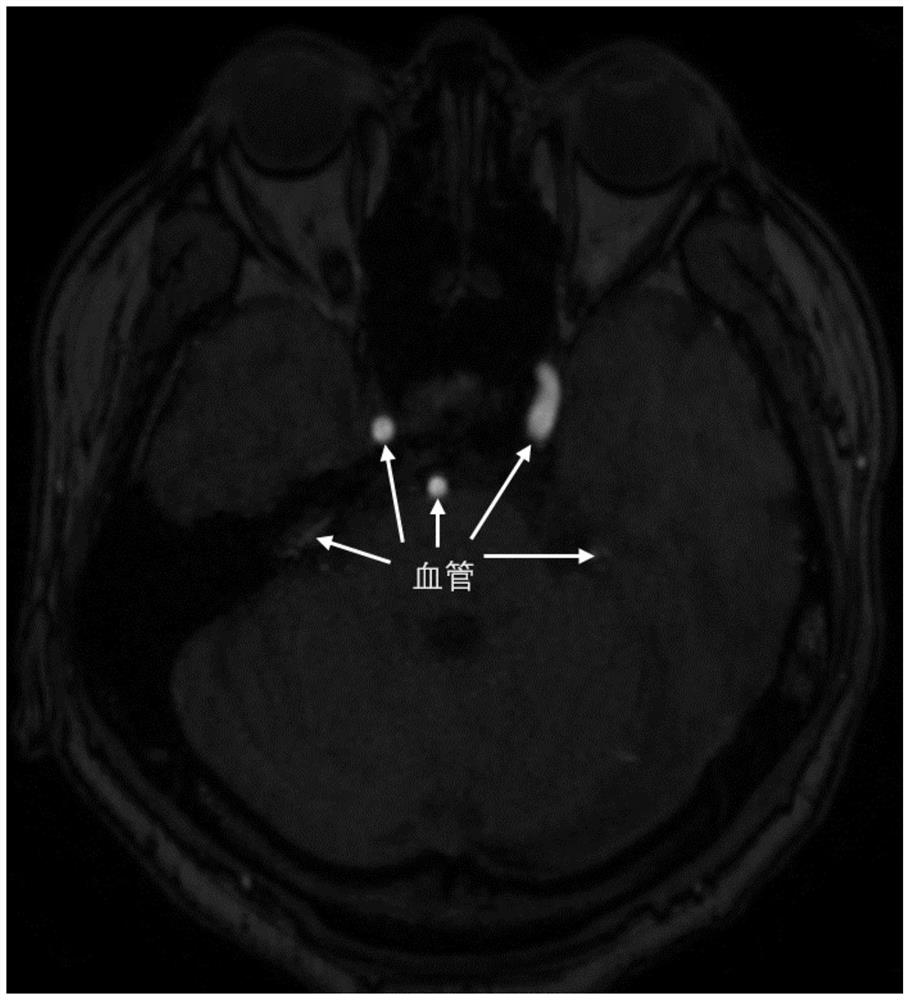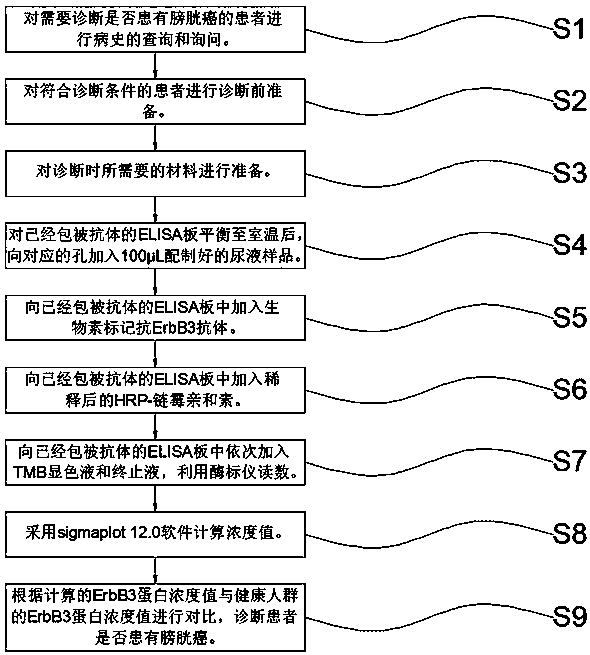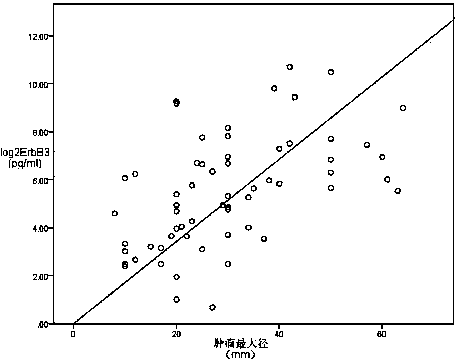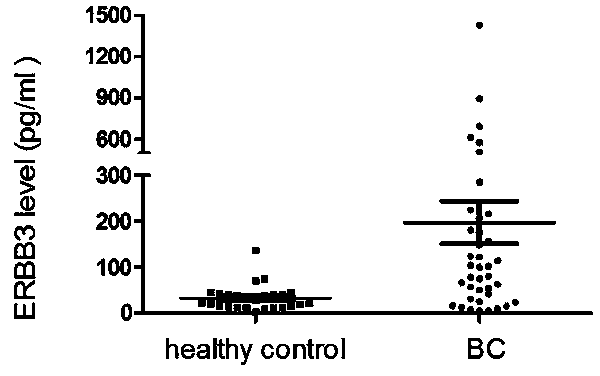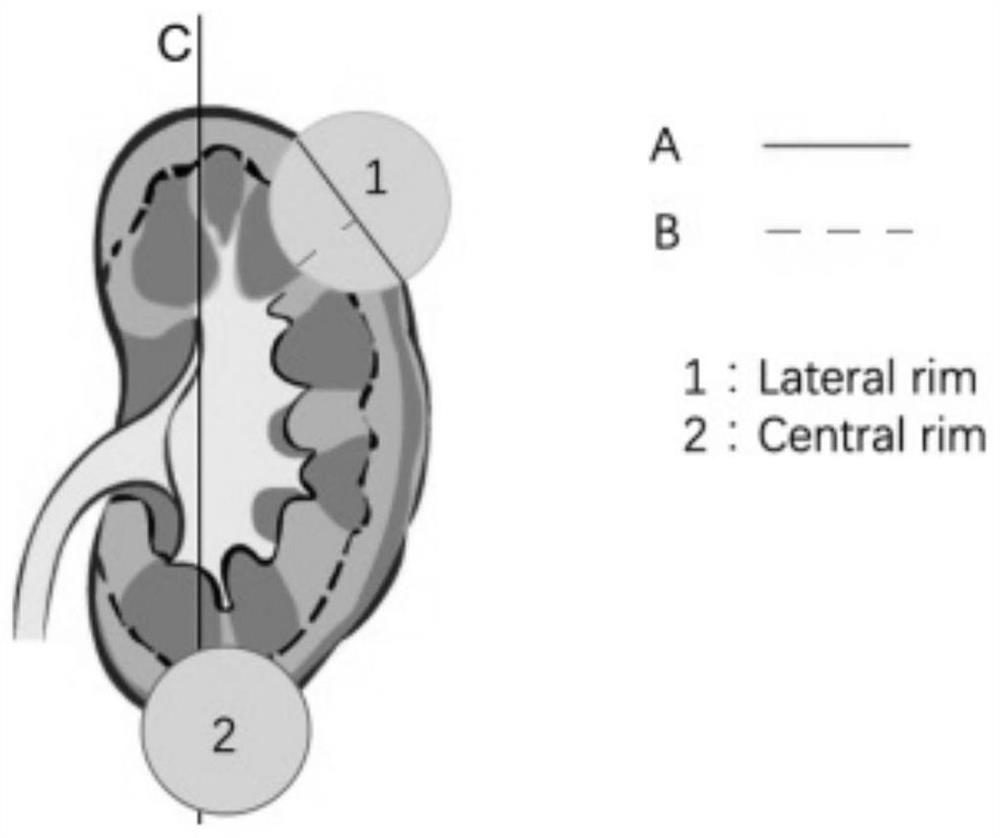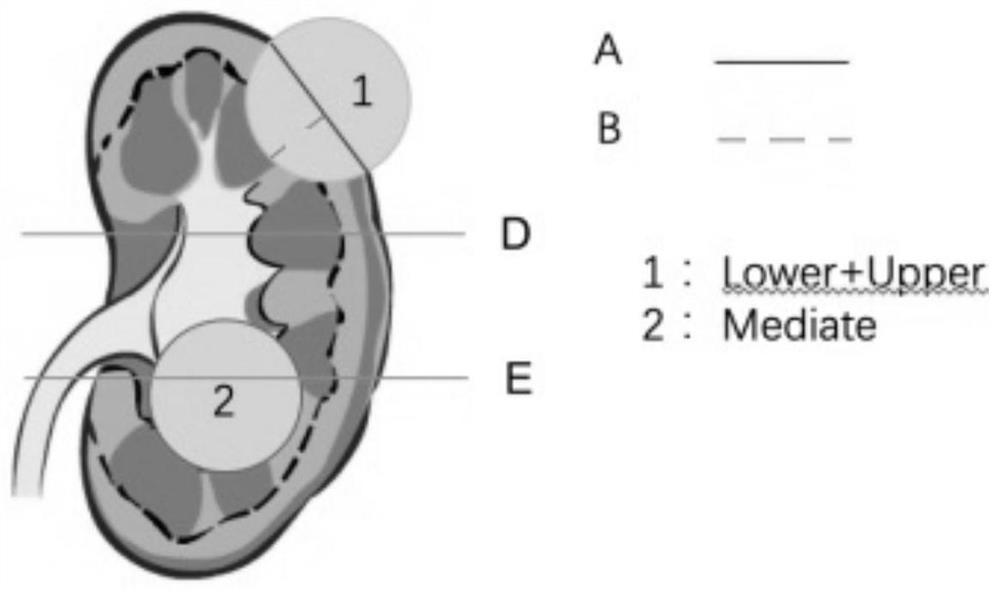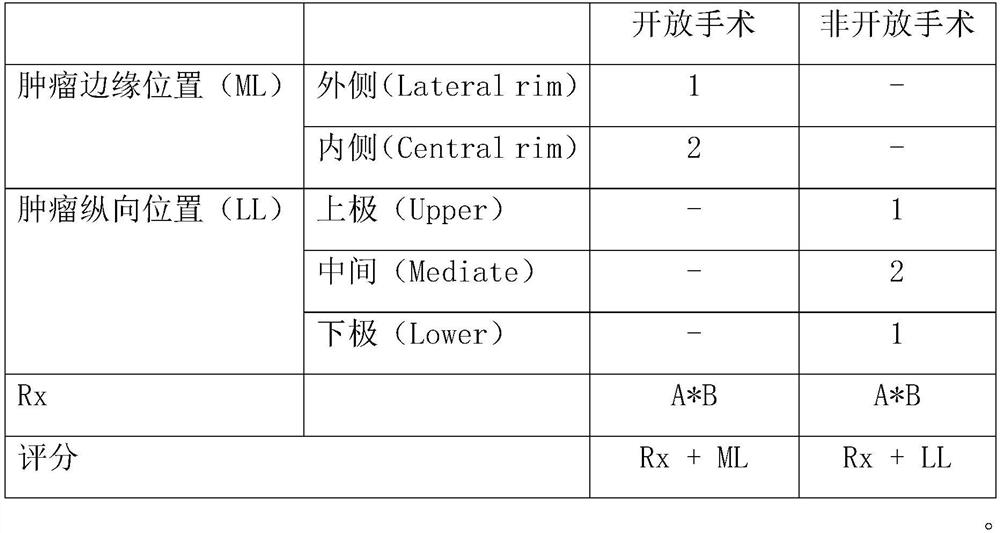Patents
Literature
47 results about "Pre-operative evaluation" patented technology
Efficacy Topic
Property
Owner
Technical Advancement
Application Domain
Technology Topic
Technology Field Word
Patent Country/Region
Patent Type
Patent Status
Application Year
Inventor
The purpose of a preoperative evaluation is not to “clear” patients for elective surgery, but rather to evaluate and, if necessary, implement measures to prepare higher risk patients for surgery.
Method for preparing brain tissue and vascular entity composite model based on MRI (magnetic resonance imaging) and CTA (CT angiography)
InactiveCN108210072AHigh degree of simulationReduce the risk of surgeryAdditive manufacturing apparatusComputerised tomographsHead and neckImaging data
The invention discloses a method for preparing brain tissue and vascular entity composite model based on MRI (magnetic resonance imaging) and CTA (CT angiography). The method includes: 1), acquiring image data of head and neck skull, brain tissue, vessel and arterial aneurysm; 2), leading acquired MRI and CTA original image data into three-dimensional reconstruction software, structuring a 3D composite virtual model containing the skull, brain tissue, vessel and arterial aneurysm and outputting to a 3D printer for 3D model printing in a format that the 3D printer can print to acquire the three-dimensional entity composite model containing the skull, brain tissue, vessel and arterial aneurysm. The model is quite high in simulation degree, so that doctors can perform preoperative discussionof surgical planning, preoperative risk assessment and design of operative route or even simulate operation in combination with the model; the brain tissue model is of fluid silicone brain tissue thatcan be pulled apart and can be pulled apart as in actual operation, so that the doctors are more confident, and operation risks are lowered.
Owner:扈玉华
Epilepsy magnetoencephalogram spinous wave automatic detection method and traceability positioning system
ActiveCN111340142AHelp captureSpike detection implementationMedical automated diagnosisCharacter and pattern recognitionPre-operative evaluationData set
The invention discloses an epilepsy magnetoencephalogram spinous wave automatic detection method and a traceability positioning system. The method comprises the following steps: 1) segmenting magnetoencephalogram data of each sample to obtain a plurality of magnetoencephalogram data segments; wherein each magnetoencephalogram data segment is a data set in the form of a two-dimensional matrix withthe size of M * N; 2) training a magnetoencephalogram multi-view spine wave detection model by using the magnetoencephalogram data segment; 3) performing artifact removal operation on the magnetoencephalogram signal to be processed, and then segmenting magnetoencephalogram data to obtain a plurality of magnetoencephalogram data segments; 4) respectively inputting the obtained magnetoencephalogramdata fragments into the trained magnetoencephalogram multi-view ratchet detection model to obtain ratchet classification results corresponding to the magnetoencephalogram data fragments; and 5) determining whether the to-be-processed magnetoencephalogram signal has the ratchet wave or not according to the obtained ratchet wave classification result. According to the invention, the working processof a doctor is simplified, and the doctor can be effectively assisted in carrying out preoperative evaluation on an epilepsy patient.
Owner:南京慧脑云计算有限公司
Method for the Mapping of the Epileptogenic Focus in the Pre-Surgical Evaluation of Patients with Intractable Epilepsy
InactiveUS20070218084A1Choose accuratelyGood choiceBacterial antigen ingredientsDisease diagnosisDiseasePre-operative evaluation
A method for functionally identifying an epileptogenic focus in pre-surgical evaluation in affected subjects with intractable epilepsy is described, the method including the delivery of an effective dose of a botulinum neurotoxin (BoNT) to a presumptive epileptogenic focus in the disease-compromised central nervous system of a mammal, under conditions whereby the effective dose of the botulinum neurotoxin interacts with the soluble N-ethylmaleimide-sensitive factor-attachment receptor (SNARE) proteins, thus impairing neurotransmission.
Owner:FOND PIERFRANCO E LUISA MARIANI ONLUS
Method and system for ensuring compliance with mandated pre-operative policies and procedures to prevent wrong-site surgeries
InactiveUS20090018864A1Easy to implementLow costData processing applicationsMechanical/radiation/invasive therapiesError preventionBiological activation
There are provided systems and methods for ensuring compliance with mandated pre-operative policies and procedures to prevent wrong site surgeries. In an embodiment, at least two operating room personnel perform a pre-operative assessment prior to a scheduled surgical procedure. The at least two participants to the pre-operative assessment provide some indicia of their personal identity as a form of attestation to their respective participation in the pre-operative assessment. Upon verifying the submitted indicia of personal identification information received from each of the at least two operating room personnel participants to the assessment, critical operating room lighting fixtures and critical outlets are switched from an initialized disabled state to an enabled state to permit activation by the operating room personnel to allow the procedure to run its normal course. In another embodiment, a recording device is activated prior to the start of a pre-operative assessment. At least two participants perform a pre-operative assessment while the recording device is activated. The recording device is then de-activated at the conclusion of a pre-operative assessment. Responsive to the de-activation of the recording device, operating room lighting fixtures and critical outlets are switched from a disabled state to an enabled state. Accordingly, a failsafe method is provided for ensuring strict compliance with the performance of the pre-operative assessment in a timely manner. The system and method is dependent upon a repeatable obligatory behavior that is easily implemented and can be added to existing physical infrastructure at a very low cost.
Owner:GECELTER GARY RAYMOND
Liver cancer image feature extraction and pathological classification method and device based on imaging omics
ActiveCN111242174AEfficient use ofExcellent performance for distinguishing subtle differencesImage enhancementImage analysisBiopsy methodsStatistical analysis
The invention discloses a liver cancer image feature extraction and pathological classification method and device based on imaging omics. The method comprises the following steps: 1) collecting a patient clinical image meeting the standard, and sketching a liver cancer lesion area of the collected image by adopting a Growcut semi-automatic segmentation method; 2) performing different levels of image omics feature extraction on the segmented lesion area; 3) feature screening: starting from a filtering method, extracting non-redundant features strongly related to the classification targets by adopting a filtering Boruta algorithm; 4) in combination with clinical indexes of the patient, filtering out significant and undifferentiated features through preliminary statistical analysis, and thenfusing the image omics features to perform next Boruta screening; and 5) training on a random forest by using the finally screened features to obtain classification labels, and completing prediction of pathological classification of liver cancer. Compared with a clinically traditional biopsy method, the method provided by the invention has the characteristics of non-invasion, safety and stability,and is expected to become an effective preoperative evaluation tool for clinic.
Owner:ZHEJIANG UNIV
Computational tool for pre-surgical evaluation of patients with medically refractory epilepsy
A method of identifying an epileptogenic zone of a brain includes receiving a plurality of electrical signals from a plurality of surgically implanted electrodes, calculating components of an adjacency matrix, calculating eigenvectors from the adjacency matrix, and selecting an eigenvector having a largest eigenvalue. The method includes assigning an integer rank to each component of the eigenvector, sliding the time window by a time increment and repeating the immediately preceding steps a plurality of times. The method includes normalizing each rank signal, extracting a multidimensional feature vector from each normalized signal, projecting each multidimensional feature vector onto a reduced dimensionality space, and receiving a plurality of training data points represented in the reduced dimensionality space. The method includes calculating grid weights for each feature vector, and assigning a numerical value to each electrode as an indication of whether the electrode is in an epileptogenic zone of the brain.
Owner:THE JOHN HOPKINS UNIV SCHOOL OF MEDICINE +1
Home-Based Post-Operative Care Systems and Methods
InactiveUS20120239418A1Data processing applicationsHealthcare resources and facilitiesPre-operative evaluationPost operative
A method for providing home-based post-operative care of a patient. The method including receiving patient information indicative of results of a pre-operative evaluation of whether a patient is qualified for home-based post-operative care, determining that the patient is qualified for home-based post-operative care based at least in part on the patient information received, identifying one or more post-operative requirements, generating a home-based post-operative care plan based at least in part on the one or more post-operative requirements, receiving updated patient information indicative of results of a post-operative evaluation of whether the patient remains qualified for home-based post-operative care, the updated patient information indicative of a result of the surgical procedure, determining that the patient remains qualified for home-based post-operative care based at least in part on the updated patient information received, and implementing the home-based post-operative care plan.
Owner:FLOWERS NEVILLE BRIAN
Preoperative evaluation method and system for neurosurgery operation
InactiveCN112967819AHigh fit accuracyImprove stabilityMedical practises/guidelinesPre-operative evaluationEvaluation result
The invention discloses a preoperative evaluation method and system for a neurosurgery operation. The method comprises the following steps: obtaining a first operation scheme through first user information; obtaining first operation evaluation information according to the first operation scheme; inputting the first operation scheme and the first user historical information into an index matching model to obtain first matching index information; obtaining a first user evaluation rule according to the first operation evaluation information and the first matching index information; obtaining first and second evaluation rule information according to the first user evaluation rule; obtaining a first user detection requirement according to the first evaluation rule information; generating a first user evaluation questionnaire according to the second evaluation rule information; obtaining a first evaluation result according to the first user detection requirement; obtaining a second evaluation result according to the first user evaluation questionnaire; and obtaining a first user preoperative evaluation report according to the first and second evaluation results. The technical problems that preoperative evaluation depends on experience and examination data of doctors, the evaluation result is not comprehensive enough, and the reliability is unstable are solved.
Owner:樊学海
Biomarker applied to early diagnosis and preoperative evaluation of pheochromocytoma/paraganglioma as well as application thereof
InactiveCN108588224AImprove consistencyMicrobiological testing/measurementDNA/RNA fragmentationPheochromocytomaMutation frequency
The invention discloses a double-chain DNA biomarker applied to early diagnosis and preoperative evaluation of pheochromocytoma / paraganglioma as well as application thereof. The biomarker is a genomedouble-chain DNA fragment specifically derived from pheochromocytoma / paraganglioma serum exosome. The double-chain DNA can represent the variation condition of RET, VHL and HIF2A with high body cell mutation frequency in a pheochromocytoma / paraganglioma susceptible gene as well as SDHB related to metastatic phenotype. The exosome DNA circulated in peripheral blood of patients comprises 97 percentchromosome locus information with the same source tumor cell. The invention provides the existence basis of the double-chain DNA in the pheochromocytoma / paraganglioma serum exosome; the double-chain DNA can be used for authenticating the mutation existing in the tumor cell; and a noninvasive molecular marker is provided for clinical diagnosis and preoperative evaluation of the pheochromocytoma / paraganglioma.
Owner:FIRST AFFILIATED HOSPITAL OF DALIAN MEDICAL UNIV
Mouth prop facilitating oral cavity observation
PendingCN112043228AAdjust the size of the openingAdjust the size of the stretchComputerised tomographsSomatoscopeOral cavity observationPre-operative evaluation
The invention discloses a mouth prop facilitating oral cavity observation, and belongs to the field of medical instruments. According to the technical scheme, the mouth prop utilizes a length-adjustable telescopic part and an angle-adjustable connecting rod part, so that the length and the width of the mouth prop, namely the opening size, can be conveniently adjusted, the applicability is good, lip and cheek soft tissues can be effectively separated, the boundary of gingiva and mucous membrane tissues can be clearly displayed on a CT or cone beam CT image, the thickness of gingiva and mucous membrane tissues can be measured, information provided by preoperative images is increased, preoperative evaluation and treatment of doctors are facilitated, a tongue fixing frame is detachably mountedinside, tongue soft tissues can be effectively separated, and soft tissue mucous membranes in the oral cavity can be effectively observed. The telescopic part adopts two different structures, the opening size of the mouth prop can be conveniently adjusted, and the mouth prop is simple in structure and convenient and fast to use.
Owner:胡慧
Preoperative evaluation tester for hearing compensation performance of artificial middle ear
ActiveCN109044364AAccurate hearing compensationEasy to install and disassembleAudiometeringSensorsPre-operative evaluationCoupling
The invention relates to a preoperative evaluation tester for hearing compensation performance of an artificial middle ear. The preoperative evaluation tester comprises a fixing and supporting device,a position and angle adjusting device, a coupling rod and an actuator clamping device, the fixing and supporting device is a flexible element, the position and angle adjusting device is fixed to thefixing and supporting device through bolts, the coupling rod is fixed to the position and angle adjusting device through bolts, the actuator clamping device is connected with the coupling rod througha thread pair, an included angle of 45 degrees is formed between the actuator clamping device and the coupling rod, and a layer of exciting film is arranged at the tail end of the actuator clamping device and attached to the output end of an actuator when the actuator is installed, so that the actuator directly couples with the eardrum. The position and angle adjusting device of the preoperative evaluation tester can adjust the pose of the output end of the actuator installed on the tester, accordingly, the output end of the actuator and the eardrum are better coupled, the effect of the actuator is made closer to the hearing compensation effect during implantation, and the hearing compensation effect after the artificial middle ear actuator is implanted into the body of a patient can be evaluated more accurately.
Owner:CHINA UNIV OF MINING & TECH
A breathing simulator for cardiopulmonary exercise testing
The invention relates to the field of medical equipment, in particular to a breathing simulator for cardiopulmonary exercise function testing. Cardiopulmonary exercise function testing has gradually become popular in China. It is mainly used in the fields of rehabilitation medicine and sports medicine. It provides clinical guidance with quantifiable data for preoperative evaluation, postoperative rehabilitation, and competitive training, and provides quantifiable data references for clinicians. . Since the gas composition, gas concentration, and gas flow rate inhaled and exhaled by the human body are inconsistent under different conditions of time, environment, and state, and the initial conditions are difficult to reproduce, the cardiopulmonary indicators measured each time are always different. The measurement results The poor reproducibility and consistency of the results hindered further research on cardiopulmonary exercise testing. In order to overcome the deficiencies of the prior art, a breathing simulator for cardiopulmonary exercise function testing is provided, which can relatively stably simulate the gas composition, gas concentration, and gas flow rate inhaled and exhaled by a human body.
Owner:赖飞
Preoperative evaluation system and preoperative evaluation method
ActiveCN107887018AImprove accuracyEasy to watchComputer-aided planning/modellingInstrumentsEvaluation resultPre-operative evaluation
The invention provides a preoperative evaluation system and a preoperative evaluation method. The preoperative evaluation system is composed of a server and a client. The server consists of a first input module, an image processing module, and a first output that are successively connected by communication. The client includes a second input module, an image evaluation module, and a second outputmodule that are successively connected by communication. The client transmits image data of a body focus part to the first input module of the server through the second output module; the server processes the body focus part by the image processing module to obtain a first three-dimensional focus part computer model and transmits the first three-dimensional focus part computer model to the secondinput module of the client through the first output module; and the client evaluates the first three-dimensional focus part computer model by the image evaluation module and feeds back a first evaluation result to the server by the second output module.
Owner:MICROPORT SINICA CO LTD
Customized optical lens based on patient-specific measurement data
PendingUS20210030531A1Solve the lack of precisionIntraocular lensPre-operative evaluationOphthalmology
Methods for a patient surgically receiving a customized IOL for a particular eye according to patient-specific measurement data are provided. The methods may include preoperative evaluation of a particular eye of a particular patient and accumulation of patient-specific measurement data by a physician and / or a hospital. The physician, designee, and / or hospital may transmit the measurement data for the patient to the customized IOL manufacturer. The IOL manufacturer may manufacture and customize the IOL. The manufacturer may deliver the customized IOL back to the surgeon, designee, and / or hospital, after which the surgeon may perform the surgery.
Owner:WAVEPRINT TECH
Maintenance method of central venous catheter with dacron sleeve
PendingCN110706799AIncrease motivationImprove abilitiesDialysis systemsCatheterSkin medicationsBlood vessel
The invention discloses a maintenance method of a central venous catheter with a dacron sleeve. The maintenance method comprises the steps of: preoperative evaluation, psychological nursing, catheterimbedding through cooperation of doctors, catheter use, catheter function recognition and prevention and medication guidance. Psychological nursing needs to do thought work of patients before catheterization; the importance, steps, operation methods and cost policies of hemodialysis catheterization are explained to patients and family members, and patients with the indwelling catheter after dialysis for many years are asked to be persuasive, so that the medical staff is trusted, and the anxiety fear of the patients is eliminated; unified training specification operations are performed, after the dacron sleeve catheter is successfully remained in the patients, propaganda and education such as skin medication self-observation are enhanced, and when complications occur, positive support is provided for symptomatic treatment, standardized working procedures and operation links are continuously improved by formulating an overall nursing measure system and developing management means such asa scientific advanced management method, a PDCA cycle management mode and department quality control. According to the invention, complications of the hemodialysis catheter with the dacron sleeve aregreatly reduced, the service life of the catheter is prolonged, and the catheter plays an important role in improving the vascular access problem and enabling a patient to obtain good dialysis treatment.
Owner:王晓君
Preparation method of nose prosthesis by using gold triangular nose carving technology and use method thereof
InactiveCN111195165ASolve unapplicable nasal problemsNatural and harmonious after effectAdditive manufacturing apparatusNose implantsThree dimensional simulationDimensional simulation
The invention discloses a preparation method of nose prosthesis by using a gold triangular nose carving technology and a use method thereof. The method comprises the following steps: acquiring three-dimensional original data of the head shape of a patient; designing a preoperative 3A scheme in three aspects of aesthetic appreciation, dissection and analysis, establishing an oriental gold four-digit triangle aesthetic system, a 3D data measurement evaluation system, an autologous tissue sampling system, an exclusive muscle subsidence preoperative evaluation system and a three-level full-nose scheme design system, and constructing a three-dimensional simulation image after nose processing; and realizing the whole design around the large gold triangle of the nose. According to the invention,the problem that nasal septum cartilage and auricular cartilage cannot be applied to the nose is solved; whole-nose fine carving is carried out specially for oriental nose problems, exclusive design is carried out according to different personal occupations, ages, facial forms, requirements and the like, 75 nose problems such as oriental nose root collapse, low and flat nose bridge, wide nose dorsum and low nose tip can be solved in a one-stop mode, the postoperative effect is natural and harmonious, and complications hardly exist.
Owner:郭永军
Compositions for ovarian cancer assessment having improved specificty
InactiveUS20160109455A1High degree of sensitivityReduce false alarm ratePeptide librariesLibrary screeningPre-operative evaluationPost menopausal
The present invention provides compositions and methods that provide a high degree of sensitivity and a high degree of specificity for the preoperative assessment of ovarian tumors in a variety of subject's (e.g., pre- and post-menopausal women) having a variety of ovarian cancer types (e.g., clear cell / mucinous, low malignant potential, high malignant potential) and at a variety of disease states (e.g., early and late stage).
Owner:THE JOHN HOPKINS UNIV SCHOOL OF MEDICINE +1
Preoperative evaluation method, device and equipment for deep brain stimulation and a storage medium
PendingCN111755117AAvoid long distance travelEasy assessment processDiagnostic recording/measuringSensorsPre-operative evaluationSurgical risk
The invention relates to a preoperative evaluation method, device and equipment for deep brain stimulation and a storage medium. The method comprises the following steps: acquiring treatment information of a patient, wherein the treatment information comprises basic condition information and operation adaptation information; performing adaptation evaluation on the patient according to the operation adaptation information, and judging whether a preset first operation condition is met or not; if the preset first operation condition is met, obtaining operation tabu information of the patient; carrying out tabu evaluation on the patient according to the operation tabu information, and judging whether the patient meets a preset second operation condition or not; if the preset second operation condition is met, it is judged that the patient is suitable for deep brain stimulation treatment. By means of the method or device or equipment, objective DBS preoperative evaluation can be conducted on a patient, the evaluation objectivity is improved, and meanwhile operation risks are reasonably avoided.
Owner:BEIJING TIANTAN HOSPITAL AFFILIATED TO CAPITAL MEDICAL UNIV
Automated pre-operative assessment of implant placement in human bone
PendingUS20210322101A1Easy to identifyPhysical therapies and activitiesImage enhancementHuman bodyMayfield head clamp
A computer-assisted and automatic identification of possible cranial positions for any kind of implant is presented. In this method, skull data of the individual patient's skull are used as well as statistical skull data which include so-called skull avoidance zones. Further, a digital template of the implant is used to find these possible positions. The implant may be e.g. an IPG and / or the screws of a fixation frame, but these are only embodiments of implants and other implants may be used with the present invention as well. The computer-implemented medical method of the present invention removes the uncertainty whether a given patient can safely receive an implant, like for example a cranial IPG, which was previously only possible on the basis of human judgement. Furthermore, the present invention removes the uncertainty whether a given patient can be safely fixated in a stereotactic frame or a Mayfield head clamp. The present invention supports the localization of optimal implant location as well as neuro-navigation guided execution of surgery. This enhances safety and speed of the entire medical procedure, as will be explained in more detail hereinafter. The advantages described hereinbefore are in the same way realized by the computer program, the medical system and the navigation system for computer-assisted surgery of the present invention.
Owner:BRAINLAB
Scoring model for predicting success rate of coronary artery chronic complete occlusion interventional therapy
PendingCN111599475AEasy to predictImprove applicabilityMedical simulationResourcesCoronary arteriesPre-operative evaluation
The invention relates to the technical field of coronary artery chronic complete occlusion lesion preoperative evaluation, and discloses a scoring model for predicting the success rate of a coronary artery chronic complete occlusion lesion interventional therapy. The method comprises the following scoring variables: blunt occlusion, 1 point; calcification: 1 point; bending, 1 point; the occlusionlength>=20mm, 1 point; far-end occlusion lesion, 1 point; side branch circulation, 1 point; target blood vessel CABG history, 1 point; occlusion in a stent, 1 point; open occlusion, 1 point, and operator variables, -4 points. The model can be used for evaluating and predicting the complexity of chronic complete occlusion and better predicting the risk of failure of the CTO percutaneous coronary intervention treatment technology, the operator technology and experience are brought into the scoring standard for the first time, scoring variables are increased, and the method has the advantages ofhigh good in applicability and high in prediction capacity.
Owner:JIANGXI PROVINCIAL PEOPLES HOSPITAL
Preoperative evaluation method and system for esophageal cancer patient
InactiveCN112992355AImprove rehabilitation effectPreoperative risk assessment is objective and accurateMedical data miningHealth-index calculationPre-operative evaluationEvaluation result
The invention discloses a preoperative evaluation method and system for an esophageal cancer patient. The method comprises the steps of obtaining first basic information of a first user; obtaining first basic illness state information according to the first basic information; obtaining a first image set of a first user, and obtaining a first analysis instruction; analyzing the first image set according to the first analysis instruction to obtain a first analysis result is obtained, wherein the first analysis result comprises real-time state information of the first user; integrating the first basic illness state information of the first user and the real-time state information to obtain a first integrated evaluation result of the first user; obtaining a first predetermined operation plan of the first user through the preoperative evaluation system; and obtaining a first risk assessment result according to the first integration assessment result and the first predetermined operation plan. The technical problem that in the prior art, preoperative evaluation of esophageal cancer patients is not accurate enough is solved.
Owner:AFFILIATED HOSPITAL OF NANTONG UNIV
Ultrasonic system for predicting curative effect of ICC immunotherapy combined with targeting and/or chemotherapy
PendingCN113506273AImprove securitySignificant effectImage enhancementImage analysisPre-operative evaluationFeature extraction
The invention relates to an ultrasonic system for predicting the curative effect of ICC immunotherapy combined with targeting and / or chemotherapy, and the system is characterized in that the system comprises: a gray-scale ultrasonic image obtaining module which is used for obtaining a gray-scale ultrasonic image of the maximum section of a focus; an ICC focus segmentation module; the feature extraction module that is used for carrying out feature extraction on the focus ROI region; a feature dimension reduction module; the radiomics prediction model that predicts key feature data after immunotherapy combined targeting and / or chemotherapy treatment of a patient. Ultrasonic is a first-line iconography method for liver examination at present, and is also the most common iconography method for ICC preoperative evaluation and curative effect follow-up visit. The imaging omics can extract massive high-throughput characteristics, and by combining conventional gray-scale images and clinical data of patients and establishing an imaging omics model based on the high-throughput characteristics, immunotherapy combined targeting and / or chemotherapy curative effect prediction of the ICC patients can be realized.
Owner:ZHONGSHAN HOSPITAL FUDAN UNIV
Biomarker for Early Diagnosis and Preoperative Assessment of Pheochromocytoma/Paraganglioma, and Application thereof
A double-stranded DNA biomarker derived from exosomes is useful in early diagnosis and preoperative evaluation of pheochromocytoma and paraganglioma, and applications thereof. The biomarker is genome double-stranded DNA fragment specifically derived from exosomes in blood serum of pheochromocytoma and paraganglioma patients. The double-stranded DNA can represent variations of RET, VHL, and HIF2A with high frequency of somatic cell mutation, and metastatic phenotype-related SDHB, which are susceptibility genes of PCCs and PGLs. The circulating exosome DNA in patient's peripheral blood contains 97% of the same chromosomal point mutation information as the tumor cells from which the DNA originated. There is evidence off the existence of double-stranded DNA in the serum exosomes of PCCs and PGLs. The double-stranded DNA can be used to identify mutations in tumor cells and provide a noninvasive molecular marker for the clinical diagnosis and preoperative evaluation of PCCs and PGLs.
Owner:FIRST AFFILIATED HOSPITAL OF DALIAN MEDICAL UNIV
Bone defect quantity evaluation method for bone Bankart injury
PendingCN112635065ASimple and fast operationImprove versatilityImage enhancementImage analysisPre-operative evaluationBone structures
The present invention relates to a bone defect amount evaluation method for the bony Bankart injury, wherein the equally-divided circle comparison card is used for being opposite to a CT three-dimensional image of a glenoid cavity of a patient, the number of equally-divided grids occupied by the glenoid cavity bone defect portion on the comparison card is read out, the overall proportion is calculated according to the proportion of each equally-divided grid, and then the bone defect amount can be evaluated conveniently and rapidly. The evaluation method is not limited by human skeleton structure characteristics, a tedious calculation process and a software learning process are omitted, and the clinical diagnosis and treatment efficiency is greatly improved. Besides, the method is simple and convenient to operate and high in accuracy, reliability and universality, provides technical support for preoperative evaluation, and has good clinical popularization and application values.
Owner:ZHONGSHAN TRADITIONAL CHINESE MEDICINE HOSPITAL
Liver cancer image classification method and device combining computer visual features and radiomics features
The invention belongs to the technical field of image classification, and particularly relates to a liver cancer image classification method combining computer visual features and radiomics features, which comprises the following steps: S1, collecting liver cancer images and case data corresponding to the liver cancer images, sorting feature diseases and treatment schemes and treatment results of the diseases, and associating input tags as a training sample library; s2, utilizing a computer to intercept focus images at corresponding positions on the liver cancer image from the label established in the step S1, classifying, and establishing a case feature library; and S3, carrying out image omics feature extraction on the focus image intercepted in the step S2. And S4, performing staged association on the disease feature process extracted in the step S3, updating the disease feature process to the case feature library, generating a disease tree feature library, and completing classification of the liver cancer images. A disease tree feature library is established, and the device can be conveniently used as a preoperative evaluation tool and is expected to help surgeons customize individualized preoperative treatment schemes and prognosis evaluation in the future.
Owner:SOUTHWEST MEDICAL UNIVERISTY
A method for automatic detection of epilepsy magnetoencephalogram spikes and a traceable positioning system
ActiveCN111340142BSimple working processAuxiliary preoperative assessmentCharacter and pattern recognitionMedical automated diagnosisPre-operative evaluationData set
The invention discloses a spike wave automatic detection method and a traceability positioning system of an epileptic magnetoencephalogram. The method is as follows: 1) Segment the magnetoencephalogram data of each sample to obtain multiple magnetoencephalogram data fragments; wherein each magnetoencephalogram data fragment is a data set in the form of a two-dimensional matrix with a size of M*N; 2 ) Use the MEG data fragments to train the MEG multi-view spike detection model; 3) Perform the artifact removal operation on the MEG signals to be processed, and then segment the MEG data to obtain multiple MEG data fragments; 4) Input the obtained magnetoencephalogram data fragments into the trained multi-view spike detection model of magnetoencephalogram, and obtain the spike classification results of the corresponding magnetoencephalogram data fragments; The presence or absence of spikes in the processed MEG signal. The invention simplifies the doctor's work flow and can effectively assist the doctor in preoperative assessment of epileptic patients.
Owner:南京慧脑云计算有限公司
Double-lower-limb scanning method for evaluating pre-force line of knee arthroplasty
PendingCN114376593AReduce radiation effectsGood preoperative data auxiliary effectComputerised tomographsTomographyPre-operative evaluationKnee Joint
The invention discloses a double-lower-limb scanning method for evaluating a force line before knee replacement, which comprises the following steps: S01, a patient lies on the back on a CT (Computed Tomography) scanning bed, and the center line of the body is kept consistent with the center line of the scanning bed; s02, performing one-section scanning on the upper and lower sides of the hip joint of the lower limb of the patient by CT; s03, performing two-section scanning on the upper and lower sides of the knee joint of the lower limb of the patient by CT; s04, performing three-section scanning on the upper side and the lower side of the ankle joint of the lower limb of the patient by CT; s05, the three groups of scanning CT data packets are imported into a processing system, and CT scanning medical images are obtained.According to the scanning method, the mode that the two lower limbs are scanned in three sections is adopted, the radiation influence on the patient in the process of scanning the two lower limbs can be reduced, meanwhile, a large amount of unnecessary section data existing in full-section scanning of the two lower limbs can be avoided, and the scanning efficiency is improved. The method can play a good role in assisting preoperative data in the HTO operation, has a good evaluation effect on the HTO preoperative, and has a great popularization value.
Owner:XIANGYA HOSPITAL CENT SOUTH UNIV
Artificial intelligence technology-based pituitary tumor operation planning system
PendingCN114743639ARealize 3D visualizationEnsure safe implementationImage enhancementMechanical/radiation/invasive therapiesNerve networkImage segmentation
The invention discloses a pituitary tumor operation planning system based on an artificial intelligence technology. The system comprises the following steps: 1, acquiring a vascular medical image sequence, a skeleton medical image sequence and a pituitary tumor medical image sequence; 2, if the medical image sequences are the image sequences shot at different moments or the image sequences shot at the same moment are not in the same coordinate system, performing registration, and placing the image sequences in the same coordinate system; 3, using a deep neural network model to take each medical image sequence in the same coordinate system as input, and outputting a blood vessel image segmentation result, a skeleton image segmentation result and a pituitary tumor image segmentation result; and 4, performing three-dimensional reconstruction on the blood vessel image segmentation result, the skeleton image segmentation result and the pituitary tumor image segmentation result to obtain a three-dimensional model for pituitary tumor preoperative planning. The method is high in processing speed and high in reliability, so that preoperative evaluation and surgical planning of clinicians become simple, accurate and rapid.
Owner:上海寻是科技有限公司
The invention also discloses application of ErbB3 protein in preparation of bladder urothelium carcinoma non-invasive diagnosis product
InactiveCN111289748AScientific and reasonable structureEasy to useDisease diagnosisURINARY BLADDER CARCINOMAMalignancy
The invention discloses application of ErbB3 protein in preparation of a bladder urothelium carcinoma non-invasive diagnosis product. The method comprises the following steps of medical history query,preparation before diagnosis, diagnosis material preparation, formal detection, detection result analysis and final conclusion obtainment. The structure is reasonable, use is safe and convenient; andwhether a patient suffers from the bladder urothelium carcinoma or not can be diagnosed by detecting the content of ErbB3 protein in urine of the patient. The ErbB3 protein is used for distinguishingdiagnosis boundary values of bladder high-grade urothelial carcinoma and low-grade urothelial carcinoma, tumor malignant-grade information can be provided by detecting the ErbB3 content in urine of the patient; and a certain reference value is provided for preoperative evaluation and postoperative follow-up visit. Besides, the muscular layer infiltration type bladder urothelium carcinoma is proneto distant metastasis, and the non-invasive diagnosis product is used for diagnosing the boundary value of the ErbB3 protein in the urine of the patient to the muscular layer infiltration type tumor;and the application of ErbB3 protein has very important significance for more accurate clinical diagnosis and making of a treatment strategy.
Owner:惠州市中大惠亚医院
Index evaluation method for renal tumor partial resection risk and postoperative early prognosis
PendingCN113517071AEase of evaluationHealth-index calculationMedical automated diagnosisPartial resectionOncology
The invention relates to an index evaluation method for renal tumor partial resection risk and postoperative early prognosis. The method comprises the steps: dividing different operation modes into open operations and non-open operations; according to preoperative CT imaging data of a patient, obtaining the sum of a basic size index of a kidney tumor and a position index of the tumor as a preoperative index evaluation index, and establishing an operation difficulty and early prognosis index for preoperative evaluation of the kidney tumor according to different operation modes. Compared with other scoring systems, the system can be more suitable for diversified operation modes at present, and reference suggestions are provided for clinicians. Compared with other scoring systems, the evaluation system for evaluating the operation risk and postoperative early prognosis of renal tumor partial resection based on different operation modes can be more suitable for the diversified operation modes at present; the system is an evaluation system established through prospective research on the basis of the corresponding illness state of a patient, and compared with a previous scoring system (based on retrospective research), the operation risk and postoperative early prognosis can be better evaluated.
Owner:ZHONGSHAN HOSPITAL FUDAN UNIV
Features
- R&D
- Intellectual Property
- Life Sciences
- Materials
- Tech Scout
Why Patsnap Eureka
- Unparalleled Data Quality
- Higher Quality Content
- 60% Fewer Hallucinations
Social media
Patsnap Eureka Blog
Learn More Browse by: Latest US Patents, China's latest patents, Technical Efficacy Thesaurus, Application Domain, Technology Topic, Popular Technical Reports.
© 2025 PatSnap. All rights reserved.Legal|Privacy policy|Modern Slavery Act Transparency Statement|Sitemap|About US| Contact US: help@patsnap.com
